Big Fish Theory - Review

It is a bit disconcerting to listen to a new album by one of your favorite artists, and to hear something entirely different. Vice Staples’ dark, almost monotone voice has been rapping bars about the harsh reality of life for years, stripped away all of the glitz and the glamour that we sometimes see, leaving only vivid imagery of drugs and violence over a bare beat.
Big Fish Theory just goes in the complete opposite direction. Instead of focusing on growing up in a gang environment, it is about Staples’ future. Instead of stripped down rap beats, it takes spacey, EDM styling to create a sort of futuristic dance mix. It’s experimental in all of the right ways. When it hits, it has some great tracks, but even on the misses, we get to see Vince step outside of his comfort zone in a way that excites me about the future.
The Appearance of Heroes
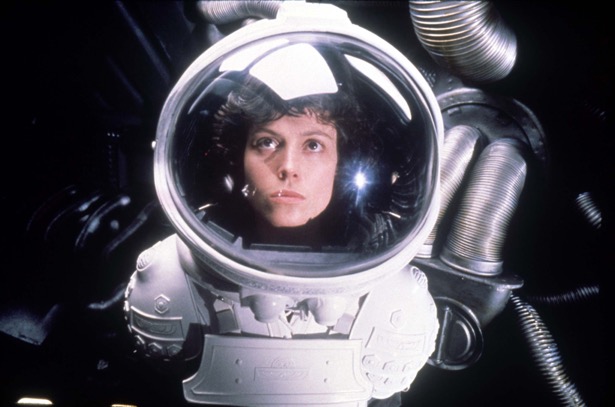
If you are an avid consumer of media, you might have noticed a few things. We write a lot about common tropes and themes that you encounter so you can begin to notice more details. So let’s do a small exercise: when you picture a hero, what do you see? Strong, virtuous, noble, upstanding. Or it is a generic white guy with five o’clock shadow and a set of rocking abs.
For some reason, a lot of our heroes look remarkably similar. Handsome, male, in-good shape, well-dressed, etc. And over the years, this image has changed slightly. It’s why a Victorian era hero looks different than the massive bodybuilders that were 80’s action heroes, and the slightly older, bearded men of today. But some things have stayed the same regardless: the fact that our heroes are overwhelmingly male, white, and heterosexual.
Grateful - Review

I wanted to like this album so much more than I did. There is something amazing about the lengths that DJ Khaled has gone for his newborn son, Asahd. Grateful is an album in his honor, and from its creation to its legacy, Khaled kept his son involved. The cover art for the album is even a picture of the (admittedly adorable) toddler posed in the corner of a pool, as if to copy so many who came before.
But the problem is that none of this loving heart seems to be found on the majority of the album. There are a few songs in the midst of this massive tracklist (23 songs, chosen for the date of Asahd’s birthday – October 23) like “I Love You So Much” with Chance the Rapper or “I’m So Grateful”. And in those lyrics full of praise heaped on the small boy, we get a genuine sense of adoration that is scarcely seen in hip-hop.
The Backlog - Hotline Miami 2: Wrong Number

The first Hotline Miami game is one of those rare titles that is almost universally liked. It is an ultra-smooth, ultra-violent hack-and-slash crime game. Each level functions almost like a puzzle. You have a defined toolset, and you have to make it through the gauntlet of vicious enemies without dying. In many ways, Wrong Number is a very similar game. You choose your mask, and with it a special ability, and then you have to clear out the level, dodging bullets and stabbing dogs.
If they had stopped here, they could have just made a basic sequel, and it would have been a very good game. It wouldn’t have the originality of the first, but it would still be satisfying to have a whole new set of deadly problems to solve while that fantastic electronic soundtrack thumped along in the background.
Boundless Discover: The Majesty of Adventure in Games

Games as a medium are about letting you enter a new world, step into the shoes of someone else, and see majestic things. They are different from other kinds of media like film or literature because you have to interact with them. A movie will keep playing, a book will keep going, no matter how you wish to proceed through it, but a game requires you to interact with it, and this interaction can change the course of the story.
More and more games are being built around open worlds and non-linear experiences. They let us as players take this sense of adventure that is so inherent to games and amplify it, and there is no better example than The Legend of Zelda: Breath of the Wild.
Melodrama - Review

With Pure Heroine, Lorde brought a unique voice to pop: smoky, honest, but also (most importantly) young and real. She was only 16 years old with the release of her debut album, and the tracks bounced back and forth between surprisingly mature and refreshingly juvenile, bringing a perspective to pop that we don’t normally see.
In the four years since, her music has had an impact, and we can see how others have attempted to mirror that rugged, pared-down style (like this year’s American Teen by another young artist, Khalid). So I was intrigued to see how she would come back, and in what way her music would change.
Why Did I Watch That? - Gallowwalkers

Wesley Snipes and hair dye are two things that should probably never go together again. You see, he is some sort of undead cowboy, hunting down a group of men that he already killed once but needs to kill again. After his family was attacked, Snipes goes after the killers for revenge. Which he gets, but he dies, but then his mom brings him and everyone he killed back from the dead. So he has to re-revenge everyone that he loves.
It actually was stuck for a while in production hell, due in part to Mister Snipes’, um, “financial and legal difficulties.” It had a troubled history over the eight torturous years of production, with the main actor switching from Chow Yun-Fat (who was first announced in 2005) to Snipes, three years later. It actually was finished a full three years before the movie would ever see the light of day, and you can sense that when you watch it, a film somehow out of time, a subpar action flick that wouldn’t be out of place in 2006 feels even more shockingly bad in 2013. And four years later, it hasn’t managed to improve.
Light vs. Dark
One of the central and most widely used theses in literature is the idea of a battle between good and evil. It could be waged with blades and bullets, or through a battle of sharp wits and razor tongues. These two sides clash over and over, and so many times we will see them indicated by the idea of light versus darkness. Light is good, virtuous and just. It is pure, an angel decked out in gleaming white robes, or a doctor in an unblemished gown. Darkness is sinister, violent and evil. It is corrupt, an ashen demon eager to tear apart all who stand in its way or as an assassin wreathed in a dark suit.
It has always served as an easy way for us to distinguish between what is “good’ and what is “bad”, but with this compartmentalization and labeling come rather entrenched ideas of racial relationships and dynamics. For a long time, societies have looked upon pale and white skin as being better than darker skin. You can see comparisons being draw between dark skin and “dirtiness” or lack of civilization. It ties closely into the idea of otherness that we’ve talked about before, and it has roots in centuries of literary history. Read More…
Historical Accuracy vs. Entertainment
If you’ve ever gone to YouTube after a big movie came out, you’ve no doubt seen dozens of videos picking apart why it was actually a bad movie because something was included that wasn’t invented yet or a character’s backstory is incorrect or some other minor detail is wrong.
The same can be said about games, with the inclusion of weapons, vehicles, or personnel that might not fit the setting perfectly. We like to make a big deal out of details like this, for some reason. Maybe it makes us feel smart, or maybe because we get to contradict the majority opinion about a piece of media, something that teases a deeply contrarian part of our brains, because what is mainstream and popular is almost necessarily uncool. Read More…
Beatiful Thugger Girls - Review

I never know what to expect when I hit play on a new Thugger album. He’s all over the place sonically, bouncing back and forth between sounds in a way that few artists are willing to do. Music does not often reward experimentation, as what is familiar is what is safe. But Young Thug is so far from being safe that he can play around more with his sound.
Yet even with that, the country infused, hip-hop/pop beats come out of left field. Not even thirty seconds into the first track, he lets out a raucous “Yeehaw”, a cry that echoes the more playful tone of his music. He’s “tryna put his dick inside of yo panties”, ask for his “baby girl come suck me and fuck me”. But at the same time, manages to deliver a strangely personal record.
The Backlog - Killing Floor
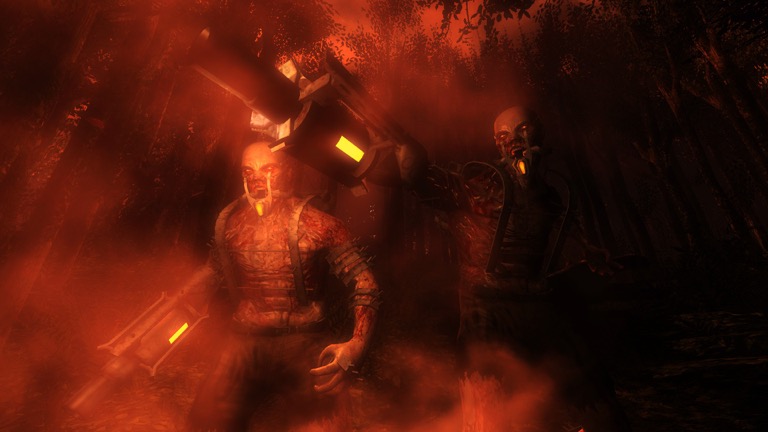
Some things are just good ideas. Cheese pizza, Arnold Schwarzenegger, kung-fu movies, and of course, zombie shooters. There is something so satisfying about killing zombies, possibly the distinct lack of morality in slaying the undead or the huge number of enemies that you come across, or the absolute ease by which they are felled.
We’ve seen countless games use them as bullet sponge enemies, but ever since 2008’s Call of Duty: World at War and it’s bonus “Nazi Zombies” mode, there has been a place in our games for zombie wave-based shooters.
Anatomy of a Character - Nightcrawler
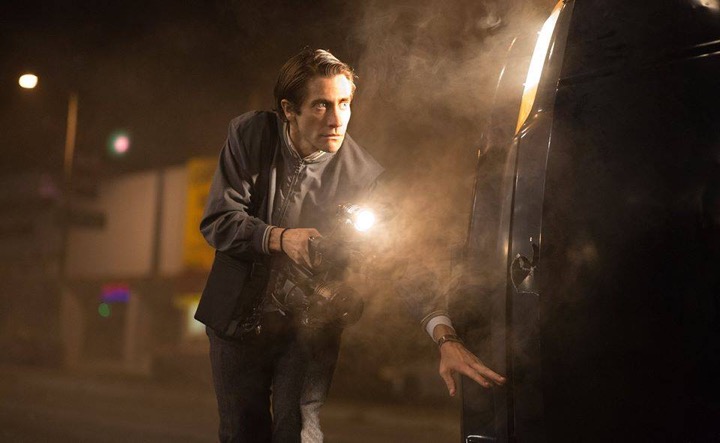
It is hard to describe what “creepiness” is, the feeling of existential dread that it fosters deep within you, an inability to look away in fear of what might happen if you do, an uncertainty of what exactly is going on. And it’s a feeling that the oddly stoic Gyllenhaal nails to a T with the character of Lou Bloom. From the moment that he is introduced until the credits roll, he demands your attention, much in the same way as a wild animal or poisonous insect, calmly watching you back, his wide eyes searching for weakness.
From the moment that he is introduced to us, we watch him try to approximate normal human behavior. Behind his smiling mask, there is an anger simmering just below the surface. But the scariest part about him is not this rage. It is that this anger might just be another mask, trying to pass for normal human emotions.
Why did I Watch That? - Universal Soldier: Day of Reckoning
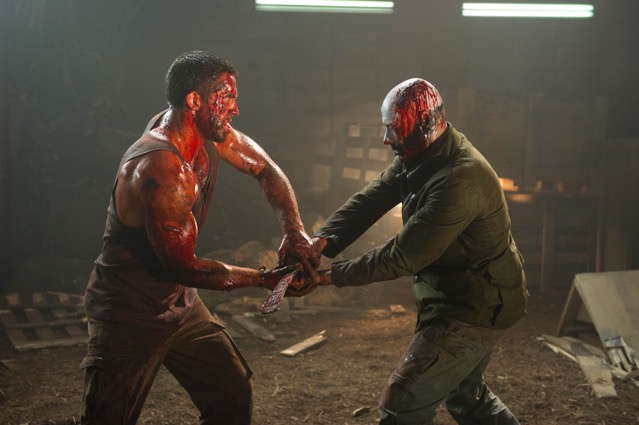
I watched a bad movie today. It is sort of a guilty pleasure of mine. Watching bad movies that is. I revel in the terrible plots, paper-thin characters, cheesy effects, and wooden acting. It fuels me. I love them in a way that I can’t quite describe, or feel about bad games or music. To me, bad films deserve to be recognized, talked about, and maybe occasionally ridiculed. This one is no exception.
---
In the realm of bad movies, occasionally the stars align and a perfect storm can form. A storm that draws me into its eye to endure yet another two hours of terrible writing and acting, with entirely too much CGI blood. Somewhere, a BBC weather reporter wakes from a deep slumber. Yet another Universal Soldier sequel has formed over the Pacific, and Jean Claude Van Damme and Dolph Lundgren promise to wreak havoc upon our collective minds. To make things all the better, this time around, they decided to add in our old favorite, Scott Adkins into the mix, promising 20% more biceps than normal.
Yet even with all of that going against them, they managed to make a movie that is not only remarkably competent, but also kind of cool at some point. The fourth iteration in the longstanding series (or sixth if you count the two made-for-TV movies), Day of Reckoning has some complex canon to contend with, clones and super soldier serums and alternate histories to navigate with a cast of actors more suited to drop kicks than dramatic monologues.
Pretty Girls Like Trap Music - Review
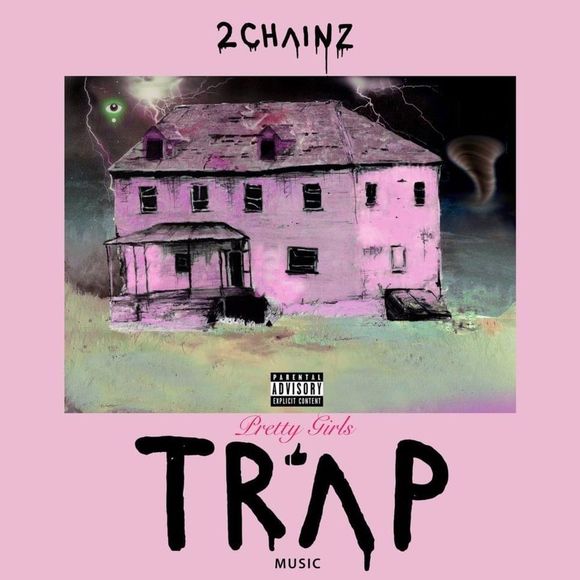
I have been convinced for a long time that 2 Chainz is a genius. One of the harder working artists in the industry, sometimes it feels like you can’t go more than ten feet without tripping over a Titty Boi feature or new mixtape. I was a big fan of last year’s Hibachi for Lunch, but with Pretty Girls like Trap Music, he manages to make the most complete album that I’ve heard from him in a while, cementing his place in the Atlanta rap scene as king, playing with the convention of trap music and his trademark ridiculousness, and reminding people that you just can’t sleep on the King.
Iconography
We’ve talked before about symbolism and how it can be used in the analysis of a piece, but today we want to look a little closer at the concept of iconography, the study of the context of images separate from their style. An image contains so much information, especially one that was crafted by an artist, and the same can be said of any of the works that we would like to analyze. If something is included on screen or in the page, then it as put there by someone intentionally. There is a reason that it exists, even if that reason is a s simple as to add clutter to the background.
When we look at a work, the style has a great deal of influence over the meaning that can be taken from it. With a painting, this could simply be the color chosen or the thickness of lines, or so many other more complex things. Compare cubism to realism, and you can see so much difference even if the paintings are of the same subject. Read More…
Paid Mods and Giving Creators Their Due
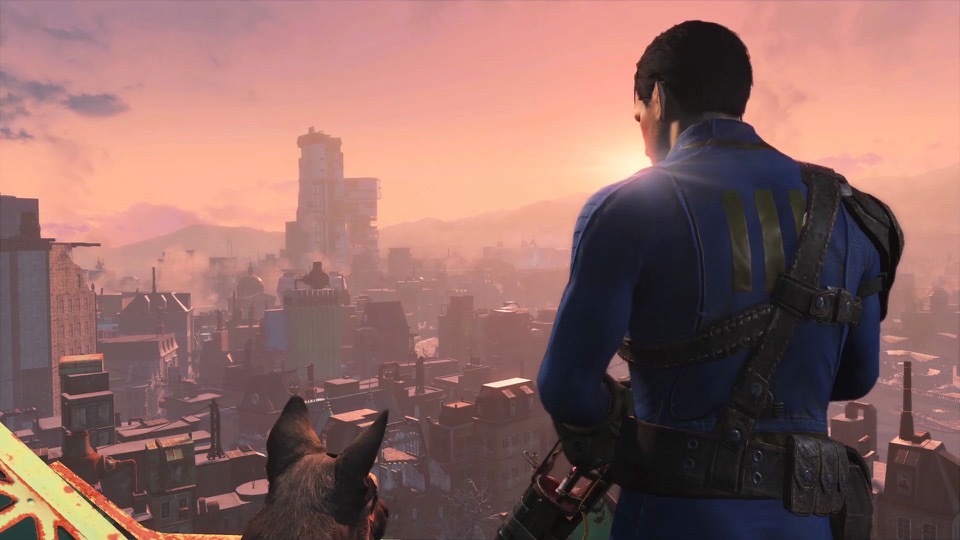
Bethesda just cannot catch a break. This year at the Electronic Entertainment Expo (E3), along with announcing yet another version of Skyrim, they stated that they would be implementing a system whereby they would be able to begin charging for select modifications for their games.
This has made a lot of people very angry, and been widely regarded as a bad move.
Almost immediately, the collective game community had a conniption, with resurfacing memories of the Valve paid mod debacle of 2015. Part of this is probably due to broad opinions about and distrust of Bethesda, but another part of it is due to a general unwillingness to pay for things within the games community. Especially things that were once available for free.
The Backlog - Insurgency
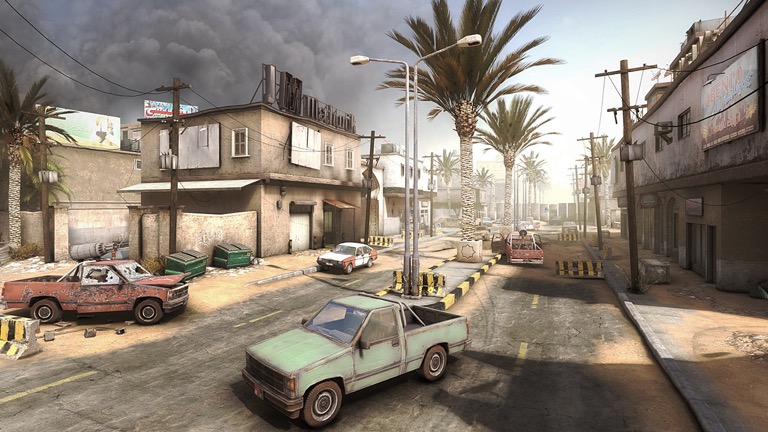
In the past few years, the simulation genre has broader into a more nebulous space than it was a decade ago, with the description taking on a memetic appeal in the gaming industry, being applied to anything and everything. While the idea of a combat simulator has been explored before by games like ARMA, there is still room for something else. Insurgency aims to provide that, with a smaller scale recreation of multiplayer gun battles between rather ordinary groups of soldiers and insurgents.
An average game of Insurgency focuses on squad based combat between two teams, each made of up a few distinct classes. Each class has a few weapons to choose from, with a scattering of rifles, carbines, machine guns, assault rifles, and submachine guns split up by speciality. But unlike a game like ARMA, the customization is bare bones. You are kitted out like members of an infantry unit, not an elite special forces operator, and you have to play around the limited resources you are allowed.
E3: Where Do Games Go From Here
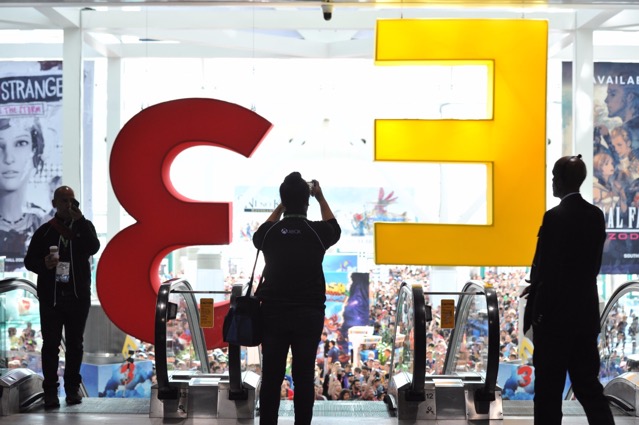
There is a certain attitude within the broader game community where we see ourselves as the scrappy underdog, an industry supported by impassioned and oft-misunderstood fans that is constantly maligned by the mainstream media in favor of more traditional entertainment industries. Where the only thing that keeps game companies afloat is die hard fans, and the worth of a game is measured by the community engagement online.
We’ve had this attitude for years, because for a long time, it was kind of deserved. Games were a hobby for silly kids and “nerds” socially undesirable and turning towards a digital medium for comfort.
But we’ve left that attitude behind a long time ago. Video games are about as mainstream as it can get, and playing games is no stranger of a hobby than watching sitcoms, cooking, or hiking.
Why Did I Watch That? - Hitman: Agent 47

I watched a bad movie today. It is sort of a guilty pleasure of mine. Watching bad movies that is. I revel in the terrible plots, paper-thin characters, cheesy effects, and wooden acting. It fuels me. I love them in a way that I can’t quite describe, or feel about bad games or music. To me, bad films deserve to be recognized, talked about, and maybe occasionally ridiculed. This one is no exception.
---
It always baffles me at which movies manage to get reboots made, and the absolute insistence on taking awful properties and milking them for all of their worth is more than a little ridiculous. There are a lot of great action movies, but there are also a lot of terrible action reboots. And for some reason, I just can't stop watching them (partly because of my almost obsession with bad movies, and partly because I'm a glutton for punishment).
Luckily Hitman is better than Death Race, but that is like trying to find out which of two spoons is sharper. I went into this with a vague hope that they would be able to leverage the property to make an at least passable movie, but instead of making the sneaky assassination movie that the game sets up so well, they try to turn it once again into an action packing political thriller full of super humans and gratuitous slow motion. It didn't work in 2007 and, unsurprisingly, it doesn't work here either.
Monolith - Review
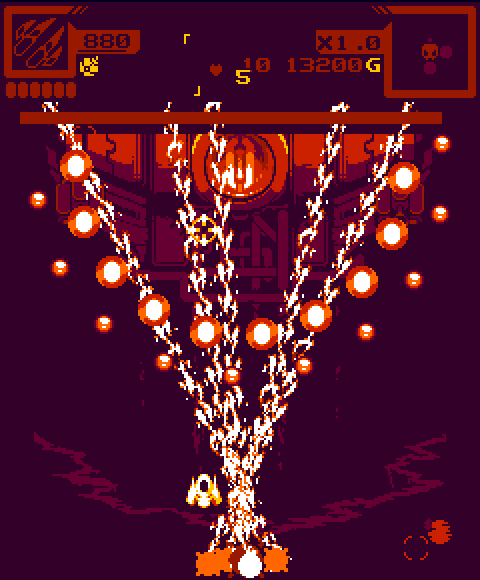
Roguelikes are a genre that we’ve written about many times before, and will no doubt continue to revisit for a long time coming. In some ways, it is the perfect genre for an independent game, as it has an inherent sense of replayability to it that other genres lack. Level design is still important, but by allowing the gamer to slot remade rooms together at random instead of having to design each level by hand makes for a significantly easier creation process. And players are far more forgiving of repeated assets and gameplay in roguelikes than they are in a first person shooter or adventure game.
Monolith takes lessons from its predecessors (The Binding of Isaac) to blend the room-by-room, top-down roguelike gameplay with "bullet hell-esque" boss fights, and the marriage is a remarkably happy one. Your little ship can flit and soar across each room, dodging shots and tearing apart your enemies. You feel capable, partly because it isn’t a particularly difficult game, with a high baseline of health that lets you tank way more shots than most roguelikes do out of the gate, and it’s relatively easy to restore your health pool, or even expand it later on in the dungeon.
Ludonarrative Dissonance
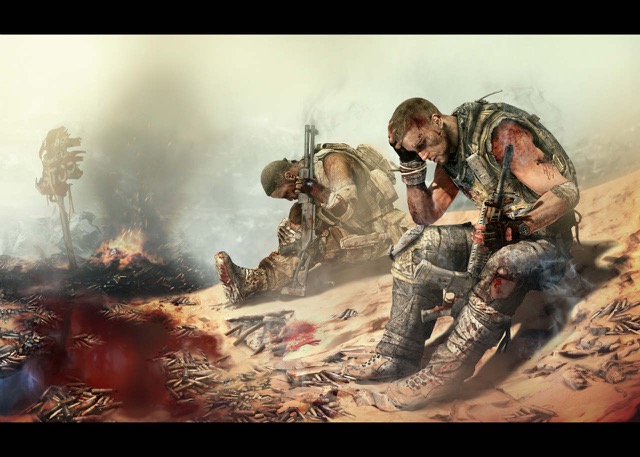
Games are a rather interesting medium to critique because of the crucial role that interactivity plays in how a story is interpreted. With a film or book, we are stuck in a single viewpoint and experience the story as if we were locked onto a roller coaster: tightly restricted and controlled. But in games, the player adds a crucial X-factor of randomness into the story that the creator has to try to control for.
To see all of the story, the player has to advance forward, completing a certain set of tasks, but sometimes the very function of the gameplay is at odds with the themes of the story being told. It is a familiar feeling within media, but games stand alone in that the layer is forced into “choosing” to do the tasks even if they don’t want to.
Drifting Lands - Review
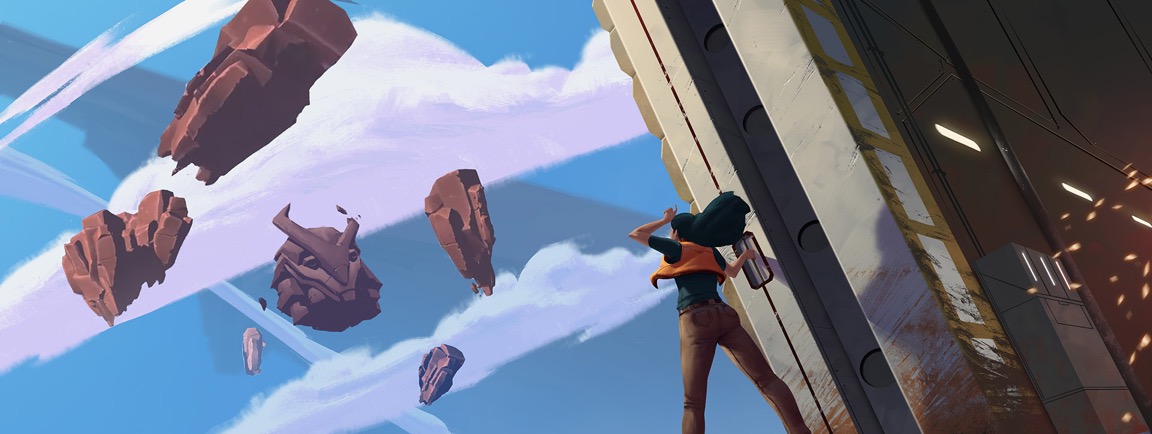
Side-scrolling shatters have always been a fun distraction for me, but even after all of these years, they have not broken out of their form. They are fun, and they present. Certain kind of intriguing challenge for us to play with. They are mastery systems laid bare, asking you to learn movements and actions to the extreme so you can fly through a hail of bullets and come out the other side unscathed. It’s no wonder that there are a huge number of side-scrolling shooters that also fall into the “bullet hell” genre, characterized by maze-like arrangements of bullets for you to try to navigate through with split second timing. They are the epitome of control, often giving you only a few pixels of clearance to squeeze through.
Drifting Lands tries to take these established formulas and turn them on their ears by injecting loot and leveling elements to add layers of complexity to the formerly simply design. Before you just had to dodge and shoot, but now you have to manage a cargo-hold/inventory, stat points, color-coded inventory, damage and attack types, all with the change to accidentally lose it at any moment and be thrust back to the beginning of your journey. It seems that along the way towards adding replayability and complexity into the game, they simply went too far.
"Grimdark" Storytelling
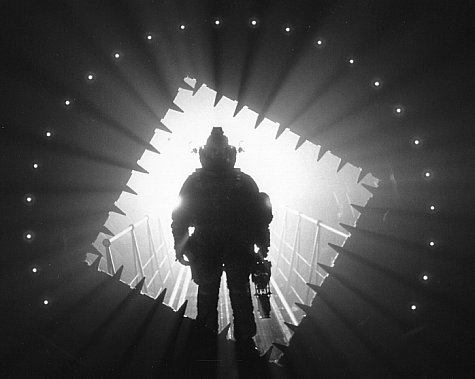
There is a widespread hate for the oft-maligned "gritty reboot" of a beloved franchise, where a director takes a well-established (and often not dark) property and propels it into a much more "realistic" world, which usually means a greyscale color palette, an actor with a five o'clock shadow, and a love of the word "fuck". Sometimes these can work out for a property, and the new direction can be a refreshing take on a familiar formula. The problem comes in with so-called "grimdark" storytelling, where the point of the story stops being the characters and becomes about how "dark" or "edgy" it can be.
Spend any significant amount of time reading fanfiction (which no one should ever do), and it is a trope that you'll become intimately familiar with> For many writers, they don't know how to make a story more mature, and as such they conflate maturity with severity, and fill their stories full of rape, torture, and gruesome murder because "it happens in the real world all the time."
The Backlog - Shadow Warrior
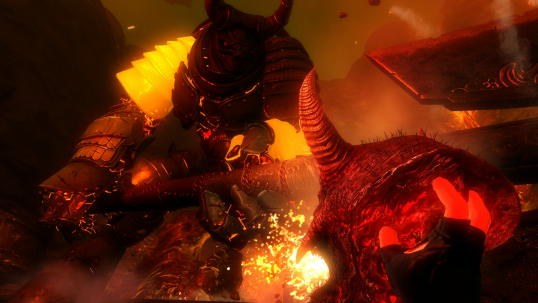
There is something about swords that are just kind of cool, that voice in the back of your mind, even as you laugh at absurd sword collections on the internet, that tells you "but wouldn't it be cool to slice apart a watermelon like you were some kind of cybernetically enhanced ninja?" Shadow Warrior takes that in the remake of the old-school shooter, combines it with a healthy dose of inappropriate humor, and enough blood to make Takashi Miike jealous. You are a Yakuza assassin tasked with re4covering a famous sword, and saddled with a sarcastic demon sidekick (and a whole lot of firepower).
In all honesty, it feels like this game should be so much worse than it actually is. It does not describe well, but in practice, it continues the trend of modern remakes of 3D shooters being pretty damn good. Half of the time, it feels like you are runing your way through some kind of weird anime, and in so many ways that works to it's benefit.
Frequently, when a game has first person sword combat, it is less than engaging, devolving into a flurry of repetitive, weightless attacks and blocks, but here that is far from the case. You have a series of special attacks along with a set of Japanese styled guns to help mix up your attacks and deal with enemies at longer range. You feel just as powerful as your character is supposed to, which is an issue that I hate running into in a game.
Anatomy of a Film - Inglourious Basterds
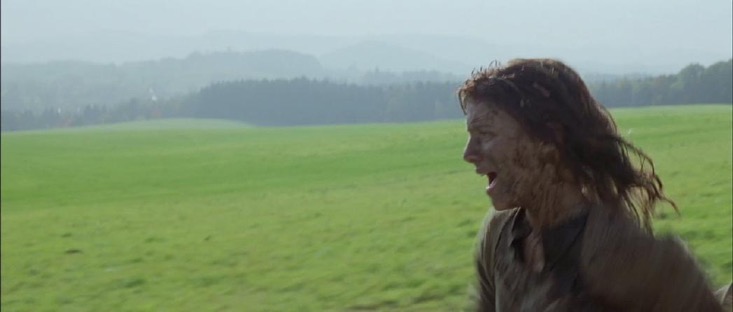
Chapter One
Once upon a time…
In Nazi occupied France
Colonel Hans Landa cuts quite the figure. Decked out in the all black SS uniform, bright, white smile plastered across his face, from the very moment that he steps on screen, he makes you uncomfortable. Not only is the seemingly cheerful man a Nazi; an officer in the Schutzstaffel, but there is just something bout his mannerisms that seem off, manufactured in a German lab as a facsimile of a friend, designed to put you ill at ease in whatever situation you find him. He takes pride in his gruesome, genocidal work, treats it like his own little game, an intriguing puzzle for him to solve. As he tinkers with his victims, the only prize that awaits them is death, to be meted out at his absolute discretion.
To him, this day on the farm where the film opens is just another in a long line of brain benders, but to the family that he is interrogating, it is the worst day of their lives. Perrier La Padite is a simple, hard working man. He has a beautiful family, an idyllic dairy farm situated in the rolling hills of France. It is almost picturesque, greenery stretching through the background as the jolly Landa strolls up, a wide grin tearing across his face, with the quiet mask of Perrier across from him. We can see the joy that he takes in his work, and the horror that everyone else sees it as.
Why Did I Watch That? - Hitman (2007)

There aren’t very many good video game movies. For some reason, it would appear that in the translation from games to film, something vital is lost. Condensing down the story and characterization of an entire franchise into a sub-two hour long movie is not an easy thing to do, and capturing the feel of gameplay, the driving force behind many games, in a human actor bound by the actual laws of physics is more than a little difficult.
As a franchise, Hitman has never had the most compelling story, propped up almost entirely by the puzzle-like challenge of finding your way through each mission without breaking stealth, navigating the semi-open levels and seeing which parts interacted with each other in interesting ways.
Superhero Fatigue
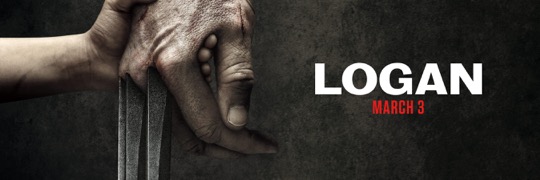
With today’s release of Wonder Woman, it has been a little over nine years since the release of the first Iron Man movie, and with it, the beginning of an international love affair with these spandex-clad superhuman, ripped from the pulpy pages of so many comic books. In these nine short years, we’ve seen the release of 36 mainstream comic book superhero movies, with even more films about the superpowers surrounding them.
It is an unprecedented inundation, and it shows no sign of slowing down, with juggernauts like The Justice League, Infinity War, Black Panther, and more on the horizon. And it is becoming harder and harder to keep getting ourselves excited at this point. The good guys beat the bad guy who had some sort of device/magic/being that threatened a city/country/world with total annihilation.
The Backlog - FTL
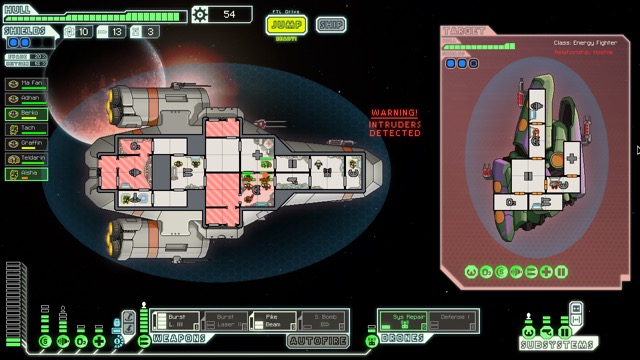
I have a confession to make. Like many of you reading this, I have a list of games that I’ve been meaning play for years. I have way too many games on Steam, and a stack of cases sitting next to my TV. Close to five hundred games now. Maybe more. It makes me feel guilty. I haven’t touched 90% of them in one way or another. I need to fix that. So this week, I dug deep into my backlog and pulled out a game. I want to play all of them; I’ve just never had the chance. Now’s the time.
For some reason, it seems that I can't bring myself to stop playing roguelike/lite games, even though my criticism of them remains the same every time I lay a new one. FTL has been out for several years now, and while it does bring a slightly different style to the genre, it does so in a shell that can feel almost punishingly random, even after dozens of tries. It is a game about time management, a game about the agony of unknown decisions, a game about hoping for the best all wrapped up in a skin of a procedurally generated roguelike/lite space game.
Atmosphere
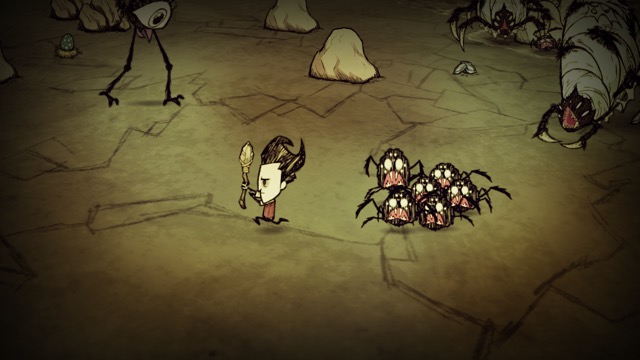
When we discuss games, especially those within the horror genre, this idea of “atmosphere” comes up again and again. I reference it rather frequently in my own writing, but one thing that we commonly neglect to do is actually say what we mean when we use it.
As it is right now, it exists as one of those, oft-used game review buzzwords, sitting alongside other repeat offenders: “visceral”, “moody”, “tight”, and countless others. We use it because it is easy, a simple way to get across a complex idea about the situations a game puts a player in, and the wide array of emotions that it evokes within you, and it would greatly benefit us all if we took the time to examine this sense to see what we really mean when we talk about atmosphere in a game.
Why Did I Watch That? - Harcore Henry
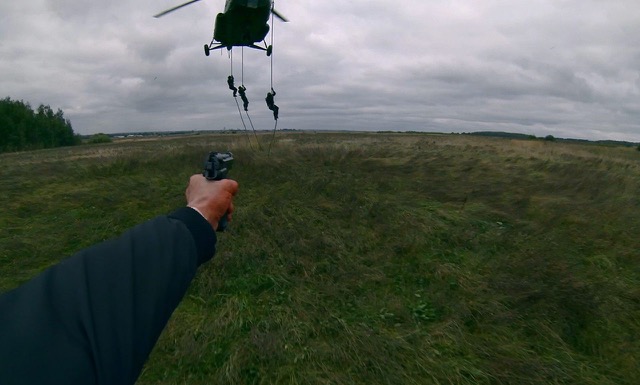
I watched a bad movie today. It is sort of a guilty pleasure of mine. Watching bad movies that is. I revel in the terrible plots, paper-thin characters, cheesy effects, and wooden acting. It fuels me. I love them in a way that I can’t quite describe, or feel about bad games or music. To me, bad films deserve to be recognized, talked about, and maybe occasionally ridiculed. This one is no exception.
A frequent statement of derision within the community of movie reviews is to state that the film feels like a video game. To many of us who have actively engaged with games for a long time, this feels like a weird accusation to level. To us, games conjure images of world-trotting adventures, roguish main characters, white knuckled action and spectacular set pieces. And there is a whole realm of games outside of this mold that are doing their best to push the boundaries of storytelling as a medium, seeing how the player character’s interactions within a fixed game space can alter the meaning of the story that it is trying to communicate.
Roguelikes and Story
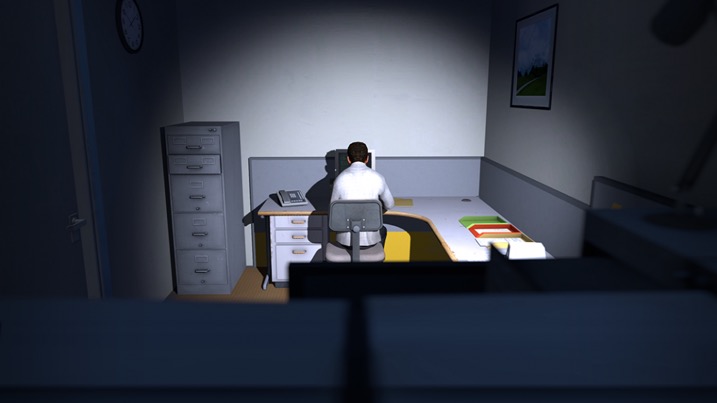
I’ve written about roguelikes before, but one thing about these games has always been limiting, at least in my opinion. The implementation of a story (or lack thereof) constrains these titles, prevents them from being something other than a casual endeavor to pick up and play when the mood strikes, and then drop after a particularly frustrating death. As a genre, it hinges on gameplay and mechanics so much because mastery and its pursuit is what keeps players coming back.
The idea of “grokking”, of not only understanding the mechanics of the game, but absorbing them enough that it enables you to look at the game differently, is the bread and butter of the Roguelike/lite genre. Sure you want to reach the end of the dungeon and fight the last boss, but even after that, you will endlessly chase the perfect run, the platonic ideal of what a playthrough could be, where everything comes together just right, with all of the correct pickups and weapons to make playing a breeze.
The Backlog - Starbound
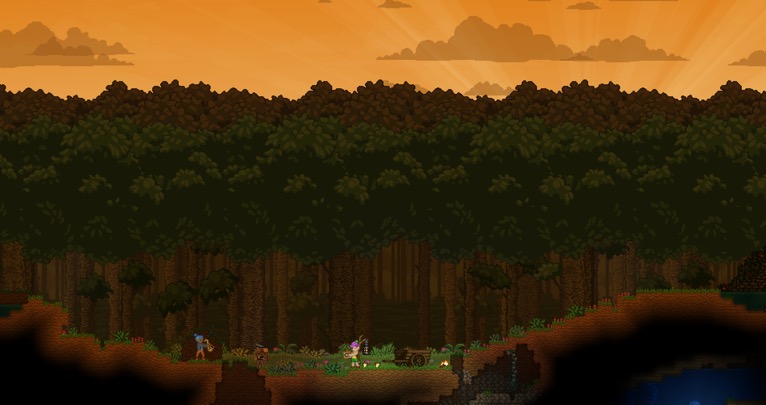
I have a confession to make. Like many of you reading this, I have a list of games that I’ve been meaning play for years. I have way too many games on Steam, and a stack of cases sitting next to my TV. Close to five hundred games now. Maybe more. It makes me feel guilty. I haven’t touched 90% of them in one way or another. I need to fix that. So this week, I dug deep into my backlog and pulled out a game. I want to play all of them; I’ve just never had the chance. Now’s the time.
Before we even noticed it, survival games came to dominate the indie PC space, pushing aside roguelikes to utterly saturate the market. Taking their cue from games like Minecraft, the scavenging, mining/survival game industry is a big one but luckily Starbound manages to carve out a place of its own. Strongly influenced by Terraria, but with some excellent quality of life changes along with a decent enough quest system that actually gives you a reason to explore the world after you have established yourself.
Anatomy of a Scene - The Babadook
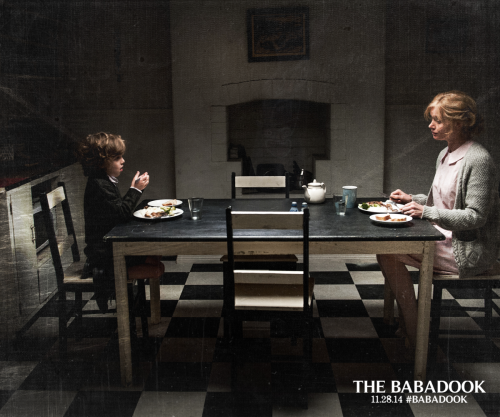
A long time theme of horror has been that the real fears do not come from the disgusting monster or the axe-wielding maniacs, but from human beings. It is the drive behind zombies, behind Michael Myers, behind vampires. In The Babadook, they take this and distill it, examining one woman and her son as they struggle with a specter that is haunting their lives. But the threat here is not a tall, scary man in black coat, but in what this man actually stands for: Amelia’s grief over the death of her husband and how she refuses to face it.
It starts as something much closer to a standard horror movie. We see a flashback of her husband’s death before we are thrust into the everyday life of Amelia and Samuel. He’s hyperactive and inventive and she is simply exhausted by it. But then one day, they find a book: Mister Babadook
“If it’s in a word
Or if it’s in a book
You can’t get rid
of the Babadook.”
Then these two start being haunted by this terrifying presence. It tortures them, forces Amelia to do horrible things. To kill her dog, to hurt her son, before it is finally beaten back. “She faces it down in her bedroom, house quivering with the force of the confrontation between them.
Why Did I Watch That? – Cradle 2 the Grave

I watched a bad movie today. It is sort of a guilty pleasure of mine. Watching bad movies that is. I revel in the terrible plots, paper-thin characters, cheesy effects, and wooden acting. It fuels me. I love them in a way that I can’t quite describe, or feel about bad games or music. To me, bad films deserve to be recognized, talked about, and maybe occasionally ridiculed. This one is no exception.
Sometimes, I watch a movie and am hit with a sudden sense of realization or remembrance. “Oh man, 80’s hairstyles were ridiculous” or “The 90’s had some horrible fashion” and “Oh shit, DMX was a thing.” Cradle 2 the Grave, as is indicated by its “2 Kool 4 Skool” naming convention, is a cool movie about cool people doing cool stuff: like robbing banks, karate, driving tanks around, rap music, and being early 2000’s DMX.
Patriarchy
As this site moves forward and we begin to introduce more complex topics it will become useful for us to give a primer in some of the themes and ideas that we are talking about. We've done a little bit of this already, but we will be digging in a little deeper into the topics in question. Death of the Critic is, at its heart, a critical website where we try to take a deeper look at different aspects of media. From movies to games to music and more, we aim to enhance the discussion around media in order to deepen our knowledge and understanding.
In feminist critique, the concept of “The Patriarchy” is frequently examined. At its simplest state, a patriarchy is a male-dominated society, with power being passed from father to son and societal structures built around that. It is a system, that by its very definition has men being greater or more valuable than women.
But it is not always this explicitly shown in a text. Rarely do stories in contemporary settings state outright that their male characters are worth more in some ways than the female characters. We have to look at the roles that they each group take, and the way in which they interplay with each other. Read More…
Superpowers and Storytelling
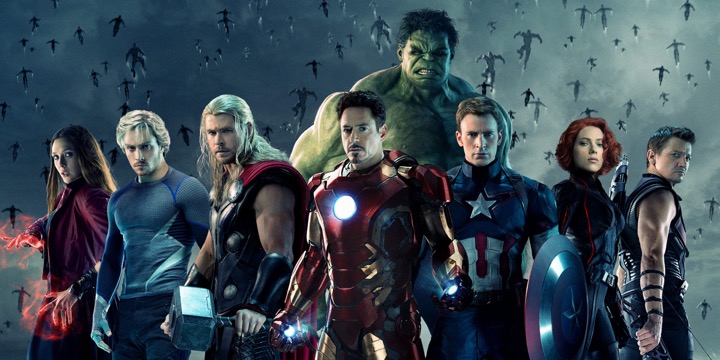
We love our superpowered heroes. Flight, strength, laser beams and more in the hands of people just like us. And the more powerful that they can be, the better. But as our heroes cross the limits of humanity, it adds more and more complications to how the story fits together, and how we, as an audience, can relate. When you start looking at superpowers, the very laws that govern our reality start to break down, and writers have to deal with the way in which this affects the plot. In the Marvel Cinematic Universe, there are multiple characters capable of warping all of reality to their whim, unkillable monsters, stones that embody pure power, literal gods, and extradimensional entities that rule over time itself. Yet so many of these reality breaking characters play by the rules of our normal universe.
The Backlog - Devil Daggers
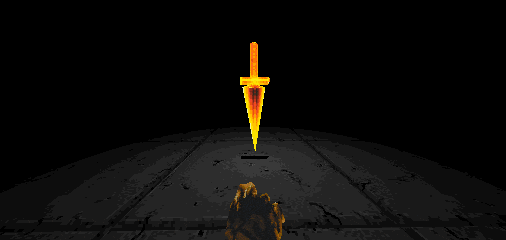
I have a confession to make. Like many of you reading this, I have a list of games that I’ve been meaning play for years. I have way too many games on Steam, and a stack of cases sitting next to my TV. Close to five hundred games now. Maybe more. It makes me feel guilty. I haven’t touched 90% of them in one way or another. I need to fix that. So this week, I dug deep into my backlog and pulled out a game. I want to play all of them; I’ve just never had the chance. Now’s the time.
When I talk about games, the idea of complexity frequently comes up. The complexity of a game’s systems or story or characters often directly correlates to the level of quality that we assign to that game. As consumers, we want a game that we can sink our teeth into, pour dozens of hours of our time into as we get to know the characters and slowly master the systems. Then we can just leave it by the wayside while we find the next open world RPG to obsess over for a few months. It is why we love games like Dark Souls, ARMA, Counter-Strike, and DOTA.
Music with a Message

If you read a lot of writing about music, you will start to notice a common criticism crop up over and over again: that the song or album is shallow. It is particularly relevant when that project has a message that it is trying to convey. So, what separates an album that communicates its message well versus one that is shallow, even if both of them are trying to deal with the same level of subject matter: racism, sexism, violence, or more.
Why Did I Watch That? - The Three Musketeers
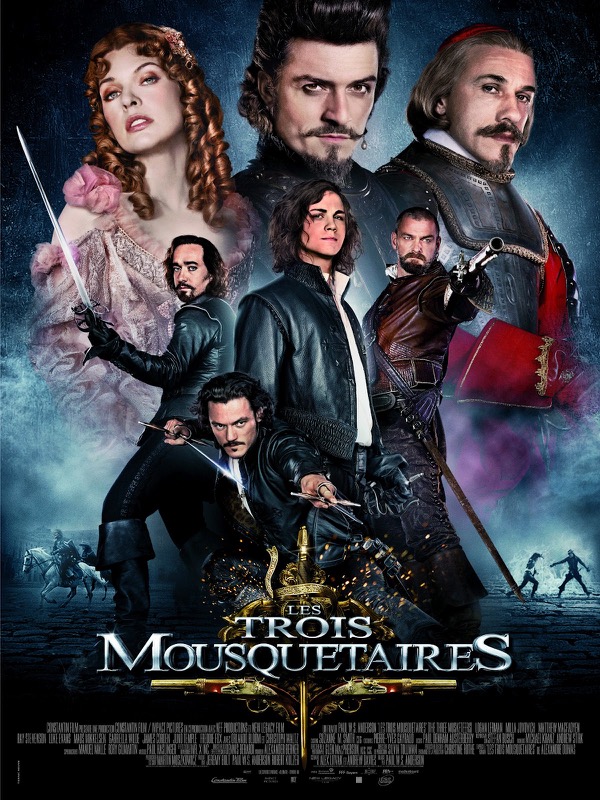
I watched a bad movie today. It is sort of a guilty pleasure of mine. Watching bad movies that is. I revel in the terrible plots, paper-thin characters, cheesy effects, and wooden acting. It fuels me. I love them in a way that I can’t quite describe, or feel about bad games or music. To me, bad films deserve to be recognized, talked about, and maybe occasionally ridiculed. This one is no exception.
Paul W.S. Anderson movies all kind of look the same at a certain point, no matter the subject matter. Lots of gratuitous slow-mo, lots of unnecessary and poorly implemented CGI, and lots of Mila Jovovich being unnecessarily sexy when it is completely uncalled for, and more than a little badass. So giving him The Three Musketeers p[property to play with, an iconic story of the heroes of France, is more than a little disappointing to see. What’s more, giving the role of D’Artagnan to the baby-faced Logan Lerman is questionable.
Tokenism
As a follow-up to our discussion on the Noble Savage, I wanted to take the time to talk about the delicate issue of tokenism in contemporary media or literature. Put simply, Tokenism is the idea of diversity being included for show, of including minority characters in minor roles such that a single minority character has to represent the entirety of their group.
In less malicious contexts, this can take the shape of something that you might see on a brochure, a “multicultural” group of people that are diverse in appearance only. These characters are not allowed to express themselves in a way that would significantly differentiate them from the norm (read: white and straight). It is a way for studios to brag about embracing diversity without actually doing anything of substance. Read More…
Product Placement: Realism vs. Marketing
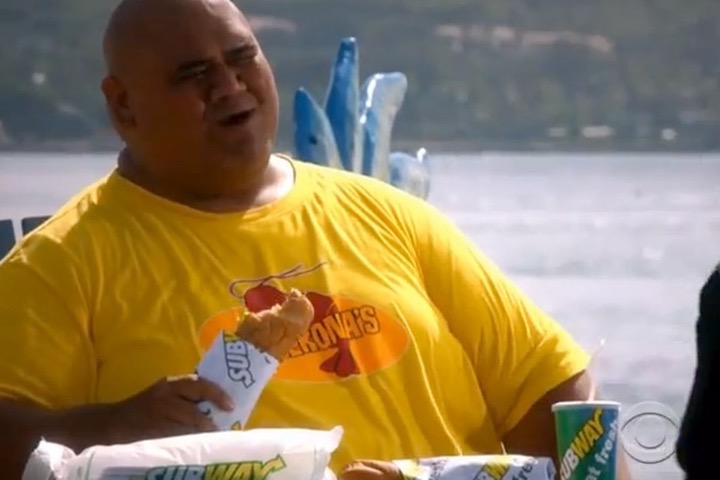
It is a familiar experience for anyone who has watched a movie or binged a TV show: the main character will be talking, walking down a busy street and in the background, we will see storefronts plastered with ads for the same few companies, Coke or Taco Bell or some other massive corporation. Often, these ads don’t even stick out, fading to the background much like they do in our everyday life (which might itself serve as some accidental commentary about the massive marketing pushes we are subjected to).
The Backlog - Risk of Rain
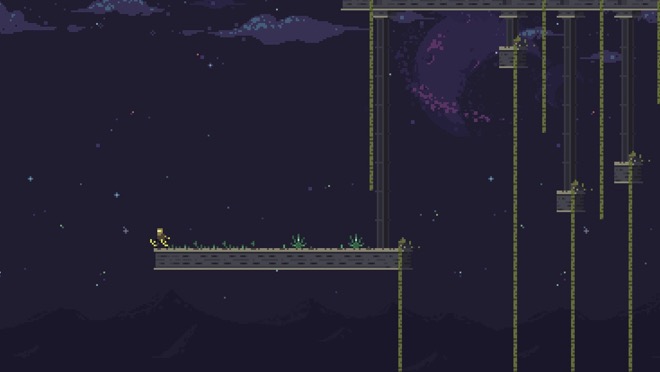
I have a confession to make. Like many of you reading this, I have a list of games that I’ve been meaning play for years. I have way too many games on Steam, and a stack of cases sitting next to my TV. Close to five hundred games now. Maybe more. It makes me feel guilty. I haven’t touched 90% of them in one way or another. I need to fix that. So this week, I dug deep into my backlog and pulled out a game. I want to play all of them; I’ve just never had the chance. Now’s the time.
With the announcement of the now 3D sequel, there is no time like the present to jump back into Risk of Rain, Happo’s side-scrolling roguelike. You take control of one of a cast of high-powered characters, each with their own special attributes, from the simple Commando, to the quick and lethal Huntress, or the careful Sniper. And while it is technically a roguelike, the levels themselves follow a predictable format. Every one of the first four levels is a choice between two separate maps, each with two, slightly different, versions. So if you play half a dozen games or so, you’ve seen all of the level variety that there is to see.
Anatomy of a Scene - Jarhead
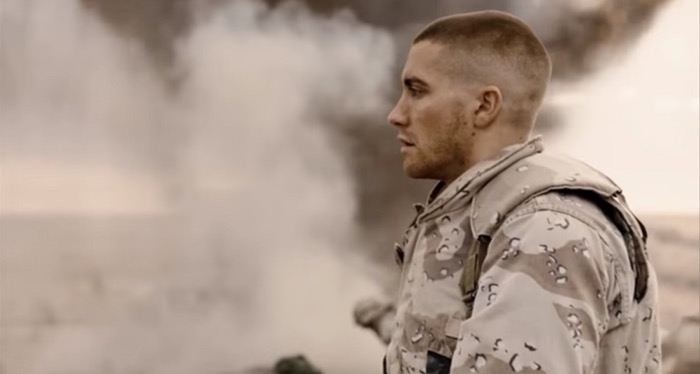
This is my rifle. There are many like it, but this one is mine.
My rifle is my best friend. It is my life. I must master it as I must master my life.
Without me, my rifle is useless. Without my rifle, I am useless.
Why Did I Watch That? – DOOM
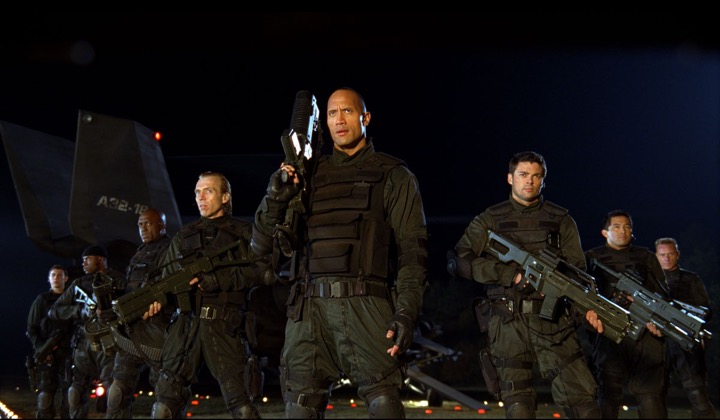
I watched a bad movie today. It is sort of a guilty pleasure of mine. Watching bad movies that is. I revel in the terrible plots, paper-thin characters, cheesy effects, and wooden acting. It fuels me. I love them in a way that I can’t quite describe, or feel about bad games or music. To me, bad films deserve to be recognized, talked about, and maybe occasionally ridiculed. This one is no exception.
DOOM is not a good movie by any means, and I’m not here to argue that fact. What I am here to argue is that you should definitely sit down and watch it, if only for one scene in the near two-hour long feature. Where we hop into the brain of Karl Urban for a first-person shooter-esque sequence that has us gunning down demons and tearing through the demented bowls of the Mars facility. It may look a little less than great, especially more than ten years after its release, but that doesn’t make it any less goddamn cool.
Everybody - Review

I’ve always thought that Logic had an incredible amount of talent in some aspects of his music. His technical ability is high, and his beats and production have always been top notch. But unfortunately, he has consistently been held back by his lyrics, and that is only emphasized in his newest release of Everybody. With this, his penultimate album, he is trying to become more conceptual, explore topics and areas that he thinks others have left ignored. It is an album about love and acceptance, about pride in oneself and in one’s people, about the way in which we all belong in this big world, and about the wrongs that we commit and how we shouldn’t.
Prey - Review
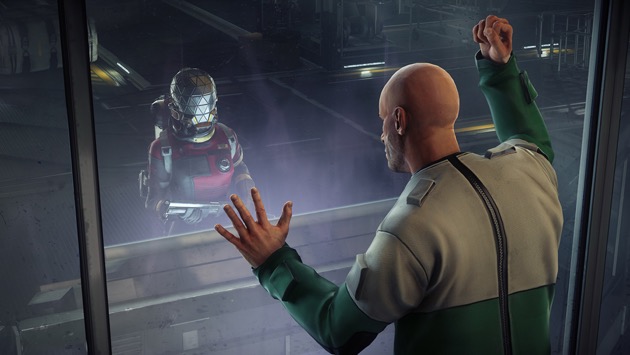
I loved the original Prey, as there was something about the science-fiction shooter that just clicked with me. It was weird, wacky, and broke new ground with its gameplay mechanics while at the same time being something very familiar. And while the reboot is something completely different, separated entirely from the original title, it does evoke many of those same feelings within me.
Male Gaze
When we talk about the depiction of sex and sexuality, frequently the idea of the “Male Gaze” comes up, mostly in regard to female characters and their depiction. At its heart, it’s a rather simple concept, but it can reveal a lot about the intended audience of a piece and of who made it. The Male Gaze is how a scene is portrayed specifically to be attractive to a heterosexual, male audience. It’s designed to appeal to men, and it is evidenced through the difference in depictions of straight male characters, straight female characters, and lesbian female characters and their relationships in media. Read More…
Bethesda's Review Policy
Much has already been said about Bethesda’s decision last year to stop sending out early review copies of their games to let “everyone, including those in the media, experience our games at the same time.” It is bad for many people, like those behind large websites, but most importantly it affects the consumers and how much information they have when they go to the store to pick out a product. It does actually benefit one other group besides Bethesda: small sites like ours that would never receive these copies in the first place. I’m not a fan of this policy by any means, but it allows me to sit on the same playing field as a writer for IGN, Polygon, Kotaku, or others.
When Dishonored 2 came out, I got it the same day that everyone else did. I was able to play through it twice that weekend, and four days later I published my review. I managed to beat a lot of major publications to press (due in part to my ability to focus on one review instead of many things at once), and while being able to do this did benefit our site, letting us see a tangible traffic boost from it, it had no way for me to help those people that wanted to buy the game on launch day.
We don’t get many pre-release copies of games at this point. Most of our reviews come one to two weeks after a game has launched, and are aimed at the smaller group of players who are waiting to buy a game. But a large portion of a game’s sales happen launch or in the week following, and we cannot help these people. Traditionally, this is where larger outlets have been able to come in with Day One or pre-release reviews based off of early copies provided by the publisher. This lets Day One purchasers make informed decisions about how to spend their money and if the new game is worth it. Read More…
The Backlog – S.T.A.L.K.E.R. : Clear Sky
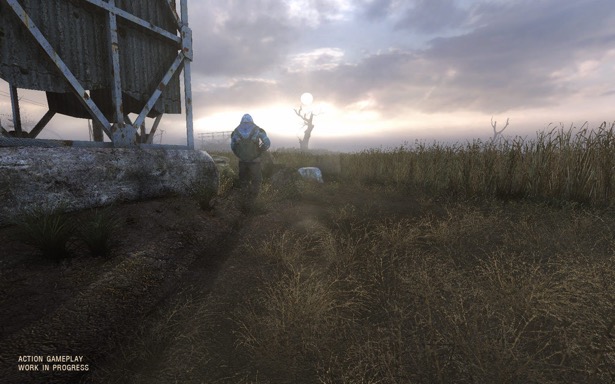
I have a confession to make. Like many of you reading this, I have a list of games that I’ve been meaning play for years. I have way too many games on Steam, and a stack of cases sitting next to my TV. Close to five hundred games now. Maybe more. It makes me feel guilty. I haven’t touched 90% of them in one way or another. I need to fix that. So this week, I dug deep into my backlog and pulled out a game. I want to play all of them; I’ve just never had the chance. Now’s the time.
There always been a big deal made out of hard games. To play and beat one was to somehow prove that you are better than more “normal” players, who somehow couldn’t handle the difficulty. The oft derided “casual” gamers speak to this phenomenon. Every time that someone picks up a copy of Dark Souls, a forum user somewhere tells you to “git gud”. But often the games that we idolize for their difficulty really aren’t that hard. S.T.A.L.K.E.R is.
Living Life Down the Barrel of a Gun
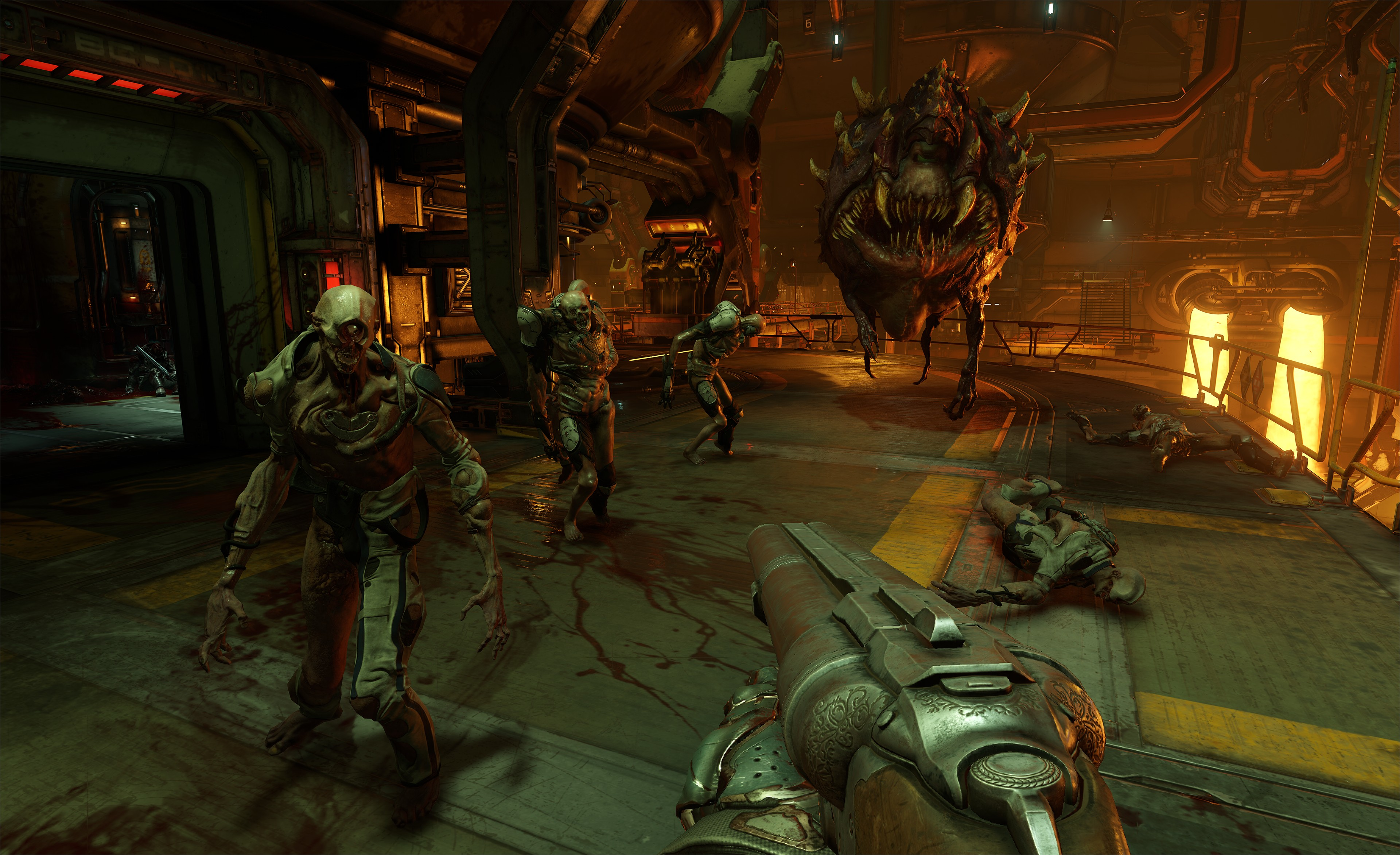
For all of the broad range of experiences that games can offer to us, the actual ways in which we are allowed to interact with them is rather limited. Most game screens look remarkably similar from a UI point of view. There is some sort of health bar, possibly a map or objective indicator in one corner, maybe a crosshair in the center of the screen, but invariably, the bottom right corner of the screen is almost always taken up by a gun. There are a few games that don’t follow this, but in the mainstream, first-person games that don’t shove a gun into your hands are the vast minority. And if your hands are filled with a gun, they have a knife, or a sword, or a bow, your weapon is offscreen, waiting to be pulled up with a single button press, aching to strike out at someone.
Why Did I Watch That - Punisher: War Zone
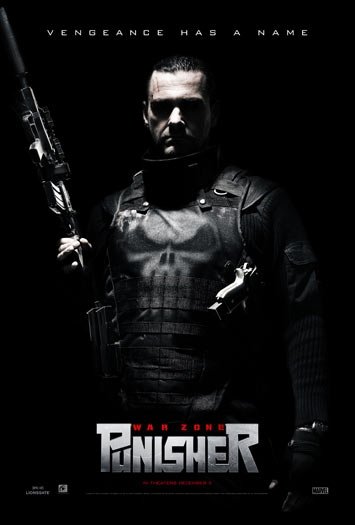
I watched a bad movie today. It is sort of a guilty pleasure of mine. Watching bad movies that is. I revel in the terrible plots, paper-thin characters, cheesy effects, and wooden acting. It fuels me. I love them in a way that I can’t quite describe, or feel about bad games or music. To me, bad films deserve to be recognized, talked about, and maybe occasionally ridiculed. This one is no exception.
Capturing the feel of a comic book accurately is really the goal of every comic book movie. The first Punisher didn’t really do a good job at this, but they ended up making what is (in my opinion) a decent action movie. With Warzone, they did a much better job at capturing the dark, violent lunacy of the comic books, but it turns out that it looks really damn weird when translated to action on screen instead of stylized on the pages of a comic book.
Sniper: Ghost Warrior 3 - Review
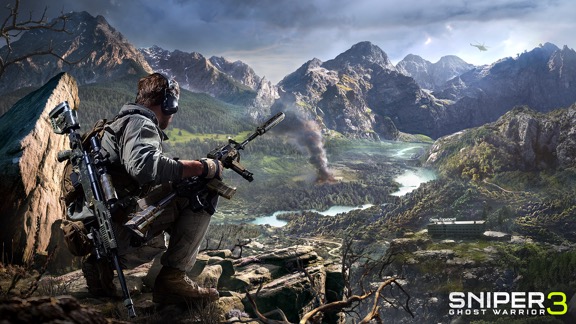
Sniper: Ghost Warrior 3 has one thing going for it. The world isn’t engaging, the characters are lackluster, the story is cookie cutter, but you have a rifle, and an uncanny ability to shoot people in the face from very far away. And that is what you do. Start a mission, mark targets, and snipe people. Wash, rinse, and repeat. It isn’t a bad system so much as it is a well-trodden and forgettable one, but luckily the novelty of shooting people in the face with high-powered rifles from hundreds of meters away lasted a while for me.
Twitch, Youtube, and "New Media"
The online landscape has shifted drastically over the course of the last five years. Websites and blogs used to be king, with dedicated reader bases coming back day after day to read the newest posts. There was a golden period of growth where anyone could make a website, and if they were dedicated, it would probably do pretty well. Coverage of games was done extensively through written articles, blog posts, and reviews, and there was a stable, if slightly adversarial, relationship between these companies and the companies that made games. Sites would get early review copies of games, access to developers for interviews, or in-depth press kits to help prepare coverage. In return, websites agreed to not post coverage of these titles until an agreed upon date. An equilibrium was reached.
Then YouTube came along and changed things. By virtue of its audience, content creators on YouTube relied on heavily edited videos, showing only the most exciting moments of whatever they were talking about. The massive Let’s Play community grouped around different games, and audiences had truly immense amounts of content at their fingertips. Search the name of the game, and they can find dozens of highly edited, exciting videos making it look to be fun, or small communities of super fans religiously playing and dissecting the game for years afterwards. You can see it with Counter Strike, or League of Legends, or DOTA, or Overwatch.
Companies noticed, and they took advantage of it. Many of these videos bordered on advertisements already in how they catered to audiences to draw them and in keep them interested. YouTube content creators live and die by audience retention, so they want to show viewers that they can come back day after day to consistently exciting and engaging content. Companies started reaching out to these channels, sending them free promotional materials or copies of the game, and any mention of this becomes positive advertising for the company. If someone receives a special Skyrim hat from Bethesda and shows it off on their YouTube channel because they feel special, it alters the appearance of Bethesda in the mind of consumers, changing them from a faceless corporate entity into an attentive and caring company that looks after its fans. They don’t have to ask for positive press from the creators, because any mention of them is good.
Compare this to the way in which video game websites handle the same situation. People don’t want to read an article about a special Skyrim hat that the author got from Bethesda, because it reads like an advertisement. Swag, or promotional materials, have been a part of the games industry, and indeed many others, for a long time. But unless the readers can get the exact same item, they don’t care. They view the pieces published by the website to be the statements of that website, regardless of who wrote them. There is less of a connection between the reader and the writer in most cases, and with this personal connection lost, appeals to the consumers work differently. Websites (outside of fan websites) don’t care about swag, because the audience doesn’t care about swag.
As YouTube has gotten larger, smaller content creators have slowly been getting crowded out. The platform enormously favors those with the time and the budget to produce consistent, daily, high quality, ten-minute plus videos, and the number of channels that can do this is low, in the grand scheme of things. Combine this with the too stringent DMCA policies that make it much too easy for a video to be taken down or removed from monetization, and many creators have been forced to diversify.
Twitch was there to pick up the pieces. Communities are only reinforced on Twitch, which shows categorizes livestreams by what games are being played while highlighting high profile streamers. However, on Twitch, channels did not have the benefit of editing to support their content, and personality reigned supreme. Tight knit communities form around streamers as they interact with their audience every single day to the point where a relationship is built. And companies have taken advantage of this. If a streamer is allowed to stream a game early, they are given a sense of exclusivity, and an implicit recommendation of the game from them to their fans. Anything that the company does for the streamer, from joining them on stream to sending them packages of promotional material, brings that company into the community.
There is nothing wrong with marketing or advertisement. It is how content creators can survive, and it is an integral part of the development and release of a game. It is a very necessary force. Print and online media have a whole host of ethical questions relating to companies that are being covered, ostensibly impartially, while these outlets are simultaneously running advertisements for these games. It’s a conflict of interest, and one that needs to be tackled and disclosed.
The issue with marketing comes when it stops appearing as marketing, when companies are manipulating fans and creators into giving them good press without revealing it, when content creators are being paid to create promotional videos without disclosing these facts, when the influence cannot be seen.
So where does that leave sites like ours, sites that don’t exactly fit into any of these molds? How do they survive? Do they attempt to extend their reach, diversify into different areas, start advertising the products that they are covering, or do they hunker down in their niche, trying to carve out a spot? The second is, without a doubt, more difficult. Staying truly independent is a challenge that all websites will face, and whether or not to stay that way is a question that every site will have to answer at some point during its lifespan. It is a question that we struggle with every day, and it is one that we eventually hope to answer.
____________________________________________

Tom has been writing about media since he was a senior in high school. He likes long walks on the beach, dark liquor, and when characters reload guns in action movies.
You Might Also Like:
Situational Invincibility and How it is Ruining Action MoviesExpectations vs Reality
What is Death of the Critic?
_____________________________________________
The Backlog - NOT A HERO
I have a confession to make. Like many of you reading this, I have a list of games that I’ve been meaning play for years. I have way too many games on Steam, and a stack of cases sitting next to my TV. Close to five hundred games now. Maybe more. It makes me feel guilty. I haven’t touched 90% of them in one way or another. I need to fix that. So this week, I dug deep into my backlog and pulled out a game. I want to play all of them; I’ve just never had the chance. Now’s the time.
Devolver Digital has had a pretty outstanding publishing record, at least in my opinion. They tend to attach themselves to some rather interesting titles, and that was what initially drew me towards NOT A HERO. And I’m glad that I decided to check it out. Read More…
Anatomy of a Scene - It Follows
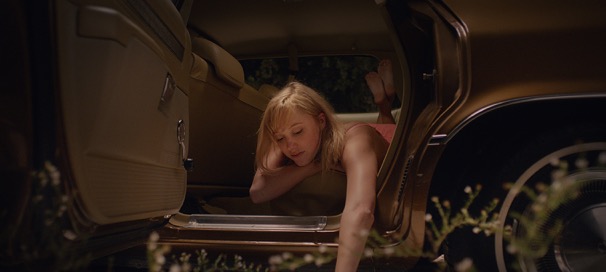
Something is following you. Hunting you. Heading in a straight line for you at every single moment of your life, awake or asleep. It can take the form of anyone, whether that be a stranger or someone you love. It wants to kill you, but it also wants to hurt you in the process, and this haunting presence is always lurking at the back of our minds, behind every corner or walking extra.
Why Did I Watch That? - Roger Corman's Death Race 2050
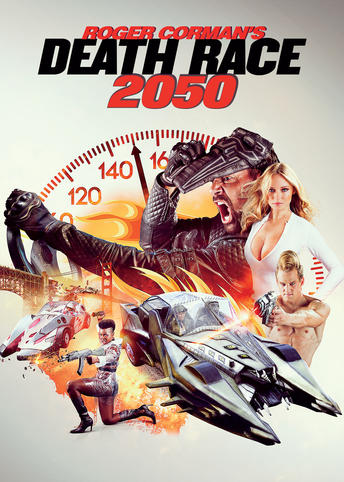
I watched a bad movie today. It is sort of a guilty pleasure of mine. Watching bad movies that is. I revel in the terrible plots, paper-thin characters, cheesy effects, and wooden acting. It fuels me. I love them in a way that I can’t quite describe, or feel about bad games or music. To me, bad films deserve to be recognized, talked about, and maybe occasionally ridiculed. This one is no exception.
Camp is a very interesting thing. It’s not something that you can actively seek out when making a movie. It has to come naturally, falling into your lap sometime during the process, with a certain level of self-awareness about what is being created. Unfortunately, too many movies try way too hard to be campy, and it normally leads to disastrous results and terrible movies. Death Race 2000 managed to become a cult classic based partly around its camp, but also with a good deal of biting commentary and satire. But with the 2017 follow-up, the creators tried way too hard to capture lightning in a bottle a second time around. Instead of a cult classic, they just had a broken bottle, and a bad movie.
The Noble Savage
As a follow-up to our discussion on “The Other”, let’s look at a more idealized version of the same concept that is popular within literature, books, movies, and games to this day. The Noble Savage is the audience’s idea of an outsider. It is the romanticized depiction of a character untouched by the ills of modern society. They embody the traits that we idealize while at the same time being utterly foreign to us. Read More…
Sequels and Reviews
Earlier this week, we publish an article about sequels and how they are viewed in relation to their preceding works, and we wanted to take the time to clarify our position on how we address this concern when writing a review for a sequel. While we do our best to look at each work on its own merits, we cannot discount significant advances or steps back compared to other works within the same franchise. Read More…
The Backlog - Homefront: The Revolution
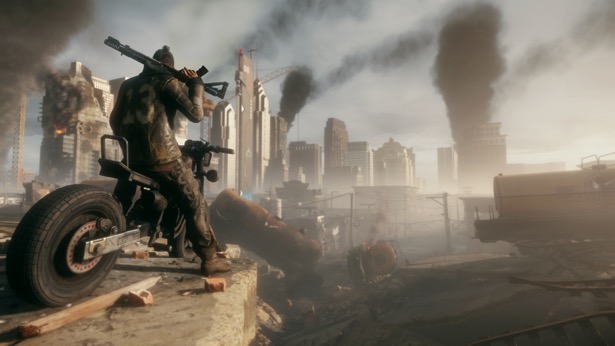
I have a confession to make. Like many of you reading this, I have a list of games that I’ve been meaning play for years. I have way too many games on Steam, and a stack of cases sitting next to my TV. Close to five hundred games now. Maybe more. It makes me feel guilty. I haven’t touched 90% of them in one way or another. I need to fix that. So this week, I dug deep into my backlog and pulled out a game. I want to play all of them; I’ve just never had the chance. Now’s the time.
The first Homefront was forgotten rather quickly, another in a long line of generic modern shooters that everyone forgot about. I, like many others, thought that it would be a forgotten piece of video game history, a curiosity that somehow got made. So, when it was revived as a semi-open world, first-person shooter, I was baffled, to say the least.
Mass Effect: Andromeda - Review

Mass Effect: Andromeda put itself in a rather unfortunate position before it was even released. It is a follow-up to one of the best franchises of the last generation that tied everything up rather neatly. Bioware has fallen out of favor in recent years, and after a series of rocky previews, Andromeda finally came out. Plagued with issues at launch, Andromeda is not a great game. It isn’t bad, but in many ways, it highlights a lot of the issues that I have with contemporary video games, while taking massive steps backwards in the franchise. It is painfully average and fails to trigger those same emotions that the earlier titles were so good at tugging on.
Expectations vs Reality

In these times, sequels are the name of the game. Finding a franchise that can be used over and over again to draw people to stores and theaters. The same can be said of music alongside games and movies, as fans eagerly await the newest release by their favorite artist. The only difference is where the name recognition lies. For games it might be with a franchise or a studio, in movies with a lead actor or director, and in music it lies firmly with the artist.
DAMN. - Review
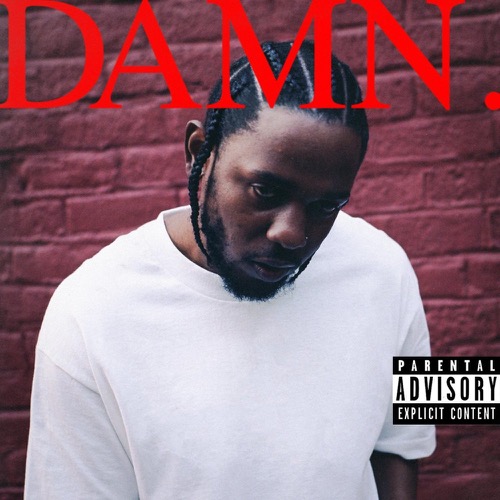
Kendrick Lamar is an artist that has always grown on me, and he has been remarkably consistent in putting out amazing records, even if it sometimes takes me a few listens to get into them. With this success has come a certain expectations, a bias towards greatness and groundbreaking tracks. His B-sides collection was one of my favorite albums of last year. And I think that this expectation is somewhat unfair. DAMN is a great album, there are no doubts about that, but it isn’t of the same level as either To Pimp a Butterfly or Good Kid, M.A.A.D City. Would I think more highly of it if I didn’t have either of these albums to compare it to, or if it was from a different artist? Is it even fair to compare them to each other? It is hard to eliminate one’s biases in writing a(n) (inherently subjective) review, but at the very least we try to make it known.
Why Did I Watch That? - Death Race: Inferno
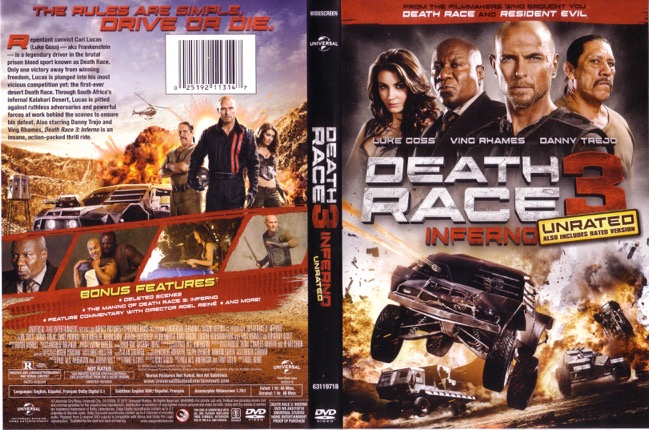
I watched a bad movie today. It is sort of a guilty pleasure of mine. Watching bad movies that is. I revel in the terrible plots, paper-thin characters, cheesy effects, and wooden acting. It fuels me. I love them in a way that I can’t quite describe, or feel about bad games or music. To me, bad films deserve to be recognized, talked about, and maybe occasionally ridiculed. This one is no exception.
When I watched Death Race 2, I said it would be a better movie if it was worse. This is that movie.
The Other
We’ve talked about the Other and bothering before, but it is a topic that deserves further examination. The Other is all about setting up the relationship within a story, about creating conflict and division. And it can be used in multiple different ways. It is a rather simple idea as well. The other is different. They don’t belong. They are strange and don’t fit in for some reason. It could be any number of things: their race, gender, sexuality, nationality, religion, class, species. Anything that differentiates them from the norm as defined by the story and it’s protagonists. Read More…
Updates and Reviews
When we are reviewing a game, we have a unique issue that we don’t encounter with any other type of media. When a game launches, rarely will it stay in the exact same state over the coming days, weeks, months, or even years that it will be in the public. It will be updated and changed over time. Sometimes these updates are small: balance tweaks to multiplayer, text fixes, or subtle adjustments that no one will ever really see. But on the other hand, some alter graphics, story, gameplay, or more. At the root is this idea: patches are fixing something wrong with the game, no matter how big it may be. So how do we deal with this as reviewers. Read More…
The Backlog - SUPERHOT

I have a confession to make. Like many of you reading this, I have a list of games that I’ve been meaning play for years. I have way too many games on Steam, and a stack of cases sitting next to my TV. Close to five hundred games now. Maybe more. It makes me feel guilty. I haven’t touched 90% of them in one way or another. I need to fix that. So this week, I dug deep into my backlog and pulled out a game. I want to play all of them; I’ve just never had the chance. Now’s the time.
Anatomy of a Scene - The Matrix
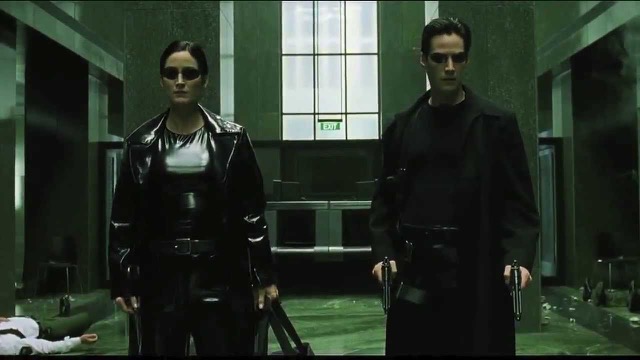
It is harder than you might think to make a great action scene. But it isn’t that hard to make a good one. Just get an engaging actor, give them a big gun, and a crowd full of goons to let loose upon. A scene like this is entirely serviceable, but many directors try to make it more complex by incorporating too many characters, with too confusing of action, and all of a sudden, you don’t know what is going on anymore. What was once a good action scene has become terrible. A good scene needs to remain clear, no matter what. You should be able to identify the positions of characters and how they are moving through the world, without unnecessary establishing shots bogging it down, all while remaining compelling and heart pumping.
Memories... Do Not Open - Review
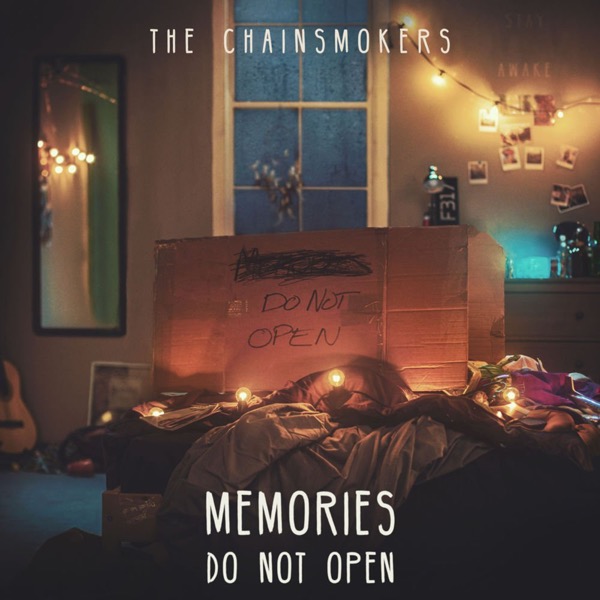
My opinion on The Chainsmokers is well documented, but somehow I had hoped that their first real album could somehow be different, break new ground and make good music. To say that didn’t happen is an understatement. There is nothing new here, just more of the same beats, more of the same subjects. More of the same everything. I’m not mad. I’m disappointed.
Why Did I Watch That? – Death Race 2
I watched a bad movie today. It is sort of a guilty pleasure of mine. Watching bad movies that is. I revel in the terrible plots, paper-thin characters, cheesy effects, and wooden acting. It fuels me. I love them in a way that I can’t quite describe, or feel about bad games or music. To me, bad films deserve to be recognized, talked about, and maybe occasionally ridiculed. This one is no exception.
I’ve written before about the folly of trying to reboot franchises that Jason Statham has starred in, and Death Race is no exception, being one of the rare double reboots. In our continuing saga to see how far off the rails one franchise can get, we look this week at Death Race 2. This time around, Luke Goss assumes the role of Frankenstein as the producers continue to try to find ways to make this lineage more complicated. After he kills a police officer during a robbery, he goes to prison, where he competes in the “Death Match”, which isn’t a race, as fighters duke it out in an arena.
The Tragic Hero
When we are looking at the construction of a character, it can help to understand some of the basic archetypes that many authors pull from. We recently talked about Shakespeare as a cultural touchstone, and if we look at many of his plays, we can find evidence of a “tragic hero”. The tragic hero is an age old character archetype describes by Aristotle as:
“A man not pre-eminently virtuous and just whose misfortune, however, is brought upon him not by vice and depravity but by some error of judgement, of the number of those in the enjoyment of great reputation and prosperity; e.g. Oedipus, Thyestes, and the men of similar families. The perfect Plot, accordingly, must have a single, and not (as some tell us) a double issue; the change in the hero’s fortunes must be not from misery to happiness, but on the contrary from happiness to misery; and the cause of it must lie not in any depravity, but in some great error on his part; the man himself being either such as we have described, or better, not worse, than that.” (The Aristotelian Concept of the Tragic Hero) Read More…
Humor in Games
Humor is really hard to nail in games. Its either hit or miss, and when it misses, it can be bad. There are a few games that manage to absolutely nail it (Day of the Tentacle, I’m looking at you) but so many more just absolutely flop, and in doing so, manage to pull you out of the experience entirely.
In the last month I’ve played two big games that have been really bad about it. Ghost Recon: Wildlands and Mass Effect: Andromeda, which both tried to work semi-edgy humor in alongside their more serious stories to varying levels of success. Every time I heard one of these bad jokes, it pulled me out, actively reminding me that I was playing games, poorly written ones at that. Read More…
The Backlog - Don't Starve
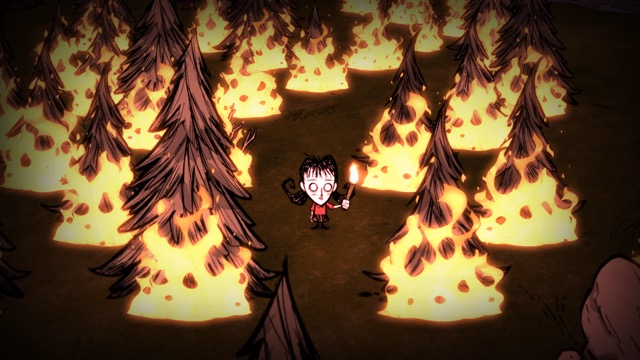
I have a confession to make. Like many of you reading this, I have a list of games that I’ve been meaning play for years. I have way too many games on Steam, and a stack of cases sitting next to my TV. Close to five hundred games now. Maybe more. It makes me feel guilty. I haven’t touched 90% of them in one way or another. I need to fix that. So this week, I dug deep into my backlog and pulled out a game. I want to play all of them; I’ve just never had the chance. Now’s the time.
Don’t Starve is a deceptively simple game. At first it seems like you just need to gather food and survive, but the deeper that you get into the game, the more complex systems begin to reveal themselves. There is magic and technology, cultivation and crafting, fearsome enemies hiding in dark places. And in some ways, the game is better for obscuring these systems, letting you discover the systems on your own and adding entire other layers of depth to the systems.
Future Unfolding – Review

Future Unfolding is a hard game to describe. A philosophical, top down exploration of a gorgeous world as you try to figure out what exactly is going on. You are dropped in with basically nothing, and what story is there is confusing to say the least. But there is something magical about wandering through the world here, almost discovering new things and slowly inching your way forward on this quasi-vision quest that you’ve found yourself in the middle of.
Why Did I Watch That? – Death Race
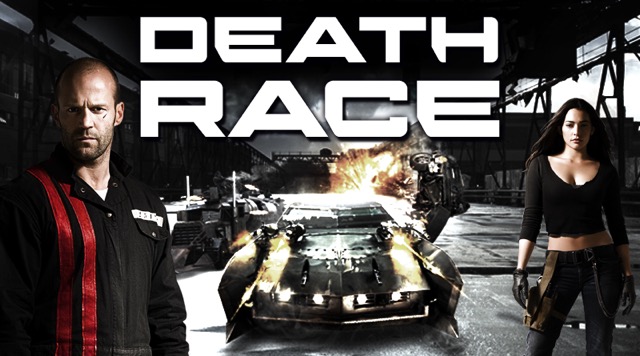
I watched a bad movie today. It is sort of a guilty pleasure of mine. Watching bad movies that is. I revel in the terrible plots, paper-thin characters, cheesy effects, and wooden acting. It fuels me. I love them in a way that I can’t quite describe, or feel about bad games or music. To me, bad films deserve to be recognized, talked about, and maybe occasionally ridiculed. This one is no exception.
Jason Statham is one of those actors whose judgement that you have to questions sometimes. His taste in movies tends to run towards whatever allows him to look the coolest while also punching and kicking as many people as possible during the limited runtime of the film. Which is sort of surprising given his roles like that in Snatch, which was excellent. Many of his more contemporary films, however, are not so great.
The Uncanny Valley
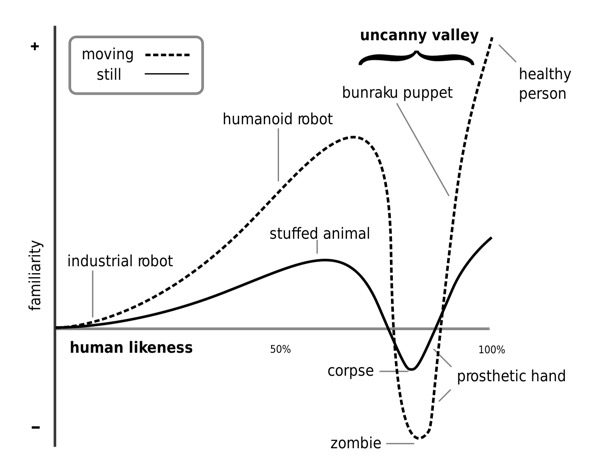
Mass Effect: Andromeda has been catching a lot of flak for its facial animations in the past few days, and by all rights it should be. They are off in a fundamental way that just makes them creepy. For the most part they are ok, but for a few characters (like lead Sarah Ryder) the animation quality is simply terrible. Any conversations about animations eventually drift into discussions about the uncanny valley. But what exactly is the uncanny valley and how does it affect animation, both in video games and otherwise?
The Backlog – Tower of Guns
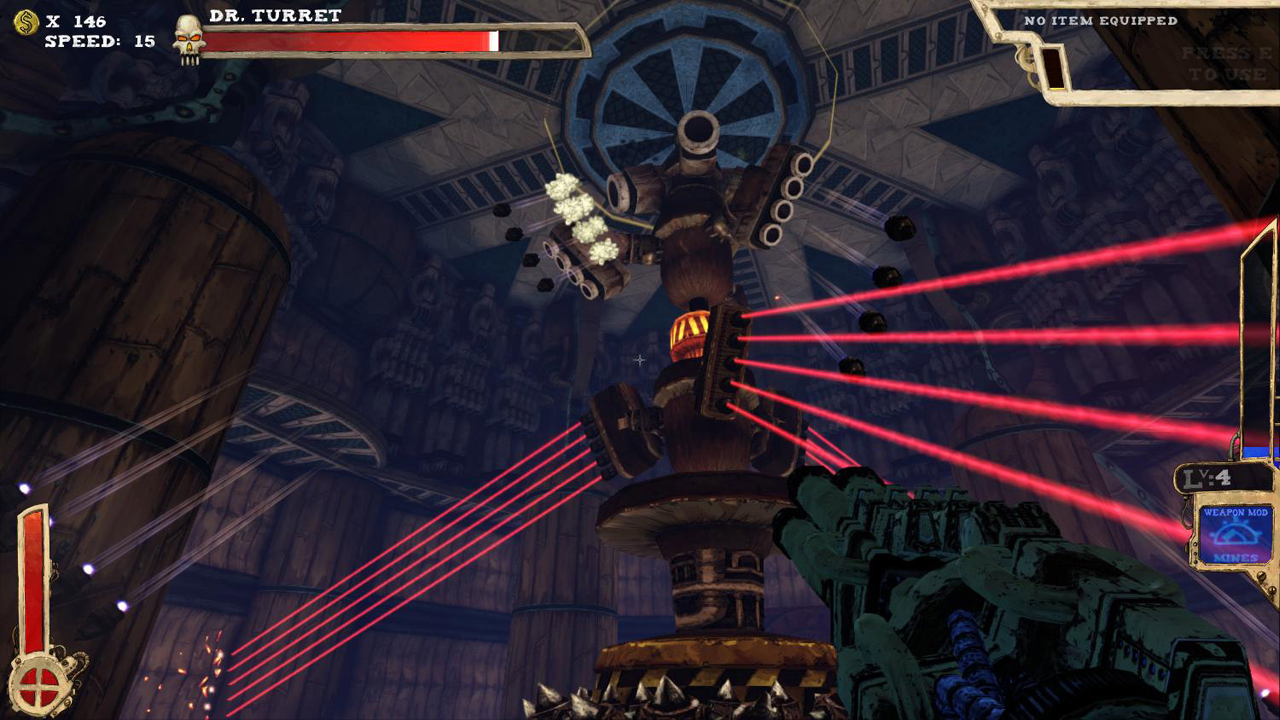
I have a confession to make. Like many of you reading this, I have a list of games that I’ve been meaning play for years. I have way too many games on Steam, and a stack of cases sitting next to my TV. Close to five hundred games now. Maybe more. It makes me feel guilty. I haven’t touched 90% of them in one way or another. I need to fix that. So this week, I dug deep into my backlog and pulled out a game. I want to play all of them; I’ve just never had the chance. Now’s the time.
With a name like this, how could you not want to try this game. Tower of Guns is a simple first-person shooter heavily inspired by Quake and other fast-paced, movement heavy, arcade shooters. Part bullet hell, part roguelike, it has a somewhat novel take on the genre that is unfortunately held back by its limited variety.
Anatomy of a Scene - Dredd
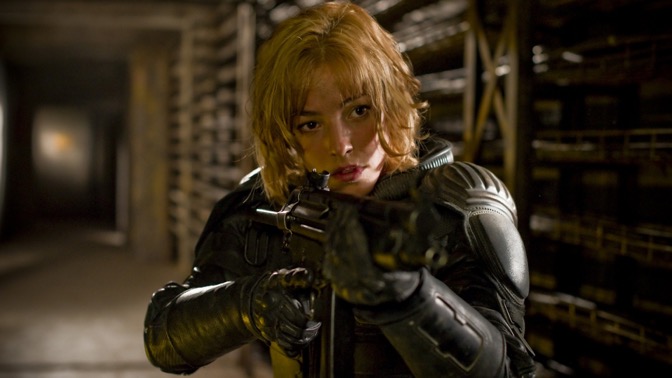
Violence can be abrupt, and horrible, and graphic, but at the same time, it can be oddly beautiful. 2012’s Dredd adds its own take on the action genre through its highly-stylized depiction of violence that is at once horrific yet also strangely beautiful. The titular Dredd is taking along a new recruit onto a mission for her to prove herself before she is otherwise forced out of the judge’s academy. She is our surrogate throughout the film, the naïve lens through which we can start to interpret the horrors that we see.
Ghost Recon: Wildlands – Review
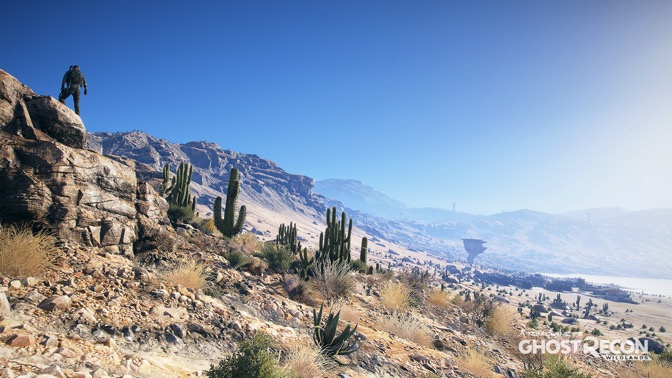
There are so many things that should have been great about Ghost Recon: Wildlands. Having a four-player co-op game set in an absolutely massive open world with free-form mission structure and tactics based combat? It sounds like the perfect storm, a game to suck up all of your time. And while it can very much eat up your time, the way it does feels cheap and unearned. There was too much to do and no real reason to do any of it, and more than once I found myself questioning why I was even playing.
Why Did I Watch That? - Monster Brawl
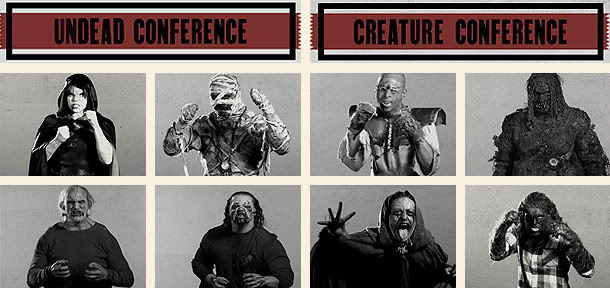
I watched a bad movie today. It is sort of a guilty pleasure of mine. Watching bad movies that is. I revel in the terrible plots, paper-thin characters, cheesy effects, and wooden acting. It fuels me. I love them in a way that I can’t quite describe, or feel about bad games or music. To me, bad films deserve to be recognized, talked about, and maybe occasionally ridiculed. This one is no exception.
Sometimes you find a rare movie that transcends quality and becomes something fundamentally different. There is no question that Monster Brawl is objectively a shitty movie, but it is unquestionably a magical experience, a bunch of movie monsters wrestling as commentators throw jokes back and forth, riffing over everything. It has comically bad acting, terrible effects, and a miserable script, but there is something here that makes it so much damned fun to watch.
What is Death of the Critic?
It has been a long few months since we set out on this journey, and since late last fall, we have been discussing the fundamentals behind the usage of criticism and how we can apply it to different types of media. This raises an important question that we now need to answer? Why do we do what we do, and why is this site called Death of the Critic? Read More…
The Captivating Simplicity of Idle Games
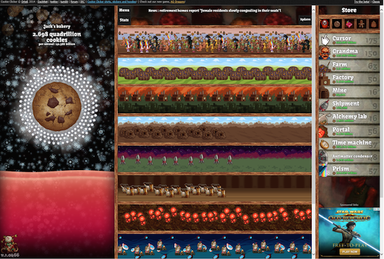
Games are built around feedback loops, obscured behind complex systems and mechanics, designed to draw us in and keep us there. We want to play the games so we can level up, become stronger, defeat new enemies, and get more and better loot. We play to get better and more efficient at playing, and in the last few years a new genre of games has stripped away this veneer and laid the inner workings bare for us to explore.
The Backlog - Sleeping Dogs
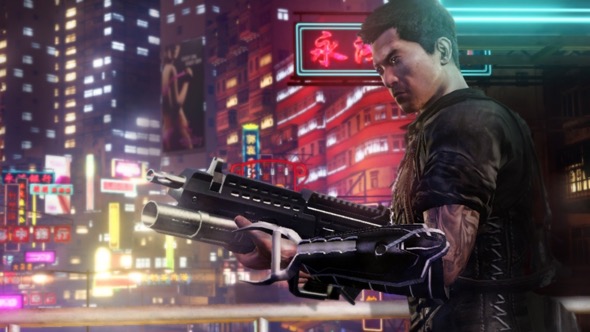
I have a confession to make. Like many of you reading this, I have a list of games that I’ve been meaning play for years. I have way too many games on Steam, and a stack of cases sitting next to my TV. Close to five hundred games now. Maybe more. It makes me feel guilty. I haven’t touched 90% of them in one way or another. I need to fix that. So this week, I dug deep into my backlog and pulled out a game. I want to play all of them; I’ve just never had the chance. Now’s the time.
I’ve made my feelings known about open-world games before, but I just can’t stop playing them. It has been a few years since Sleeping Dogs came out, which still surprises me given the troubled lineage of the title. It was warmly received, finally giving a GTA-style open-world game a satisfying combat system. It made the game fun to play in a way that few open-world titles manage to be. By making combat fun, it made the inherent experience of playing the game better.
Situational Invincibility and How it is Ruining Action Movies
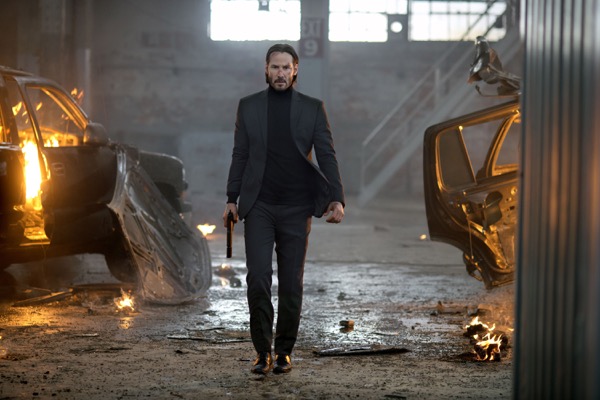
We like our action movies to be big, to be brash, to be full of gunfights and cool explosions and scores of dead bodies littering the streets in the wake of our stalwart hero. But this same desire often raises a problem: our hero can’t die, or even barely be hurt at all, so all elements of tension, all suspension of disbelief go out of the window.We never wonder if our hero will rescue their friend or kill the bad guy, because you can be damned sure they will, with only an annoying flesh wound and a few smartass quips to speak to the “struggle” that they went through on the way.
Why Did I Watch That? - The Last Survivors
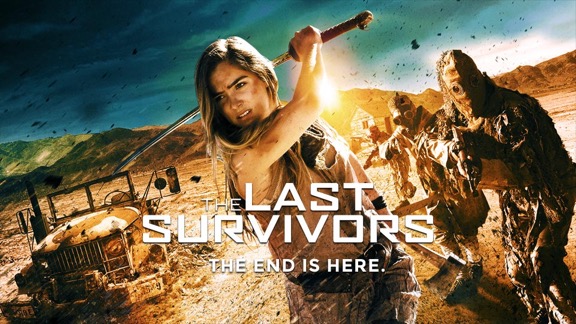
I watched a bad movie today. It is sort of a guilty pleasure of mine. Watching bad movies that is. I revel in the terrible plots, paper-thin characters, cheesy effects, and wooden acting. It fuels me. I love them in a way that I can’t quite describe, or feel about bad games or music. To me, bad films deserve to be recognized, talked about, and maybe occasionally ridiculed. This one is no exception.
Sometimes movies are forgettable, mediocre even, and that is one of the worst things that I can say about a movie. When it fails to excel at anything or stand out in any way. The Last Survivors is such a movie, another in a long line of post-apocalyptic “action” films that have nothing to do or say to stand out. A group of settlers is trapped in a contemporary dust bowl, trying to survive against the land grabbing rich, and the overall lack of water.
Explication – Holy Sonnet #10
Death, be not proud, though some have called thee
Mighty and dreadful, for thou are not so;
For those whom thou think’st thou dost overthrow
Die not, poor Death, nor yet canst thou kill me.
From rest and sleep, which but thy pictures be,
Much pleasure; then from thee much more must flow,
And soonest our best men with thee do go,
Rest of their bones, and soul’s delivery.
Thou’art slave to fate, chance, kings, and desperate men,
And dost with poison, war, and sickness dwell,
And poppy’or charms can make us sleep as well
And better than thy stroke; why swell’st thou then?
One short sleep past, we wake eternally,
And death shall be no more; Death, thou shalt die.
Explication is one of the simplest ways that we can analyze a piece. Put simply, it is a close reading, a deep look into a text to see what surfaces. This can take on a number of different forms, depending on the media that is being analyzed, from a line by line reading of a poem or song (like the one that we are going to be looking at today), to detailed character analyses from a movie or book, to an examination of a particular chapter or section (like our ongoing Anatomy of a Film) series. Today we are going to look at John Donne’s Holy Sonnet #10 and the themes of death and afterlife that it contains. Read More…
The Backlog - Uncharted 4: A Thief's End
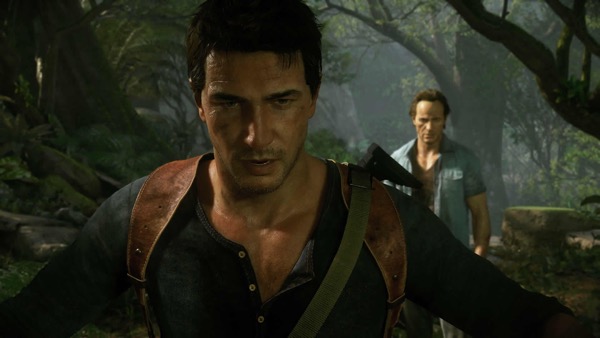
It’s way too easy to fall way too far behind on games. They simply ask for too much of your time and money to be able to keep up with all the ones that look interesting. Thankfully, almost entirely due to online sales, eventually you’re able to get most games for a five dollar bill and an afternoon of free time.
Uncharted 4: A Thief’s End is the best entry in the already great Uncharted series.
In nearly every way, Uncharted 4 improves upon the previous iterations; the combat feels better and makes you feel more like an action hero than ever, the “stealth” works, which is miles above the last few games, the puzzles are by and large very intuitive, almost never becoming frustrating, and the story is very compelling even though it misses the hint of the supernatural that all the previous games had.
Anatomy of a Scene - Alien

Alien has changed so much as a franchise since it was first made. It went from science fiction horror to action to crossover monster battles. But it all started with this, a few people trapped on a ship with their worst nightmare. When we talk about horror, we speak a lot to tension, that feeling of building unease that makes us worry about what is coming next. More importantly, it makes us almost beg for it to happen. Alien begins with almost an hour of it, moodily piling on the tension before taking it away all at once.
Why Did I Watch That? - Leo the Lion
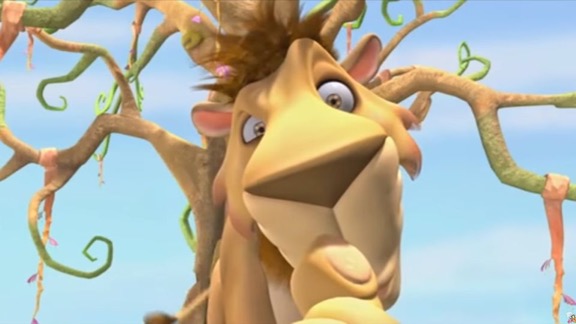
I watched a bad movie today. It is sort of a guilty pleasure of mine. Watching bad movies that is. I revel in the terrible plots, paper-thin characters, cheesy effects, and wooden acting. It fuels me. I love them in a way that I can’t quite describe, or feel about bad games or music. To me, bad films deserve to be recognized, talked about, and maybe occasionally ridiculed. This one is no exception.
It is hard to call a children’s movie bad in the same way that I do with a lot of the films that I watch or this series. I hold children’s movies to a different standards. I don’t expect depth of plot or complex characters or action. But no matter what, I don’t expect a movie like this. Leo the Lion confused me, left me scratching my head at many of the decisions that were made.
American Teen - Review

For a first effort, American Teen is undeniably impressive. It is a simple, soulful music built on repetition that catches your ear and makes you want to keep listening. But by virtue of this style, it is restricted in some way. It is not deep, but it means something to the 19 year old who made it. It is music about being an American Teen. Finding your place in life, exploring the world and experiencing all of its ups and downs that come with it. He compares it to a rollercoaster in “Coasts” and while the metaphor is apt, it’s far from original.
Critical Touchstones
When reading a text, it is important to build out your toolkit, your set of references for how you look at a work. And while every person’s is different, there are a few tool that everyone should have in their arsenal. Texts reference ideas that they expect the reader to be at least partly familiar with, as the goal is to have the audience understand. There are a few broad cultural touchstones that we keep looking back to for our works: the Bible, and Shakespeare. Read More…
Logan - Review

Logan is a much different “superhero” movie than any we’ve seen before. In fact, it is hard to even call it a superhero movie. It is a movie about old, tired men trapped in a world in which they no longer belong. It is a movie about Logan, not about the Wolverine. It gained a lot from the R-rating, building a bleak world that Logan is trapped in. He’s wracked with pain, scarred and broken from hundreds of years of fighting and killing. He’s taking care of Charles Xavier as they live on the run, the world around them now devoid of mutants.
The Backlog - Super Time Force
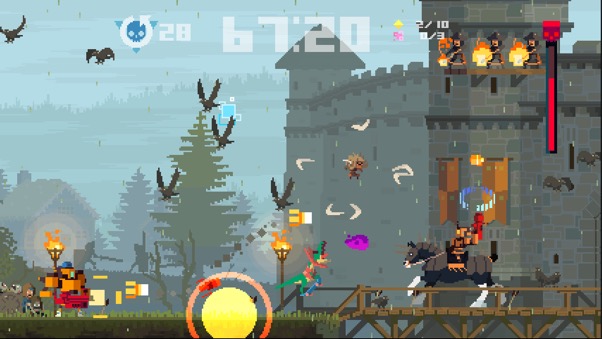
I have a confession to make. Like many of you reading this, I have a list of games that I’ve been meaning play for years. I have way too many games on Steam, and a stack of cases sitting next to my TV. Close to five hundred games now. Maybe more. It makes me feel guilty. I haven’t touched 90% of them in one way or another. I need to fix that. So this week, I dug deep into my backlog and pulled out a game. I want to play all of them; I’ve just never had the chance. Now’s the time.
Sometimes all a game has is a good idea, and the one behind Super Time Force is unquestionably good. It is a side scrolling, bullet hell shooter a la Contra, but they remixed classic concept by letting you rewind time and use previous versions of your character (think ghosts from a racing game) to help you progress. Admittedly, this concept is hard to comprehend without seeing it in action. It lets you rewind time to try a challenge over and over again, each time becoming easier by virtue of having additional help from your ghosts.
Do the Right Thing
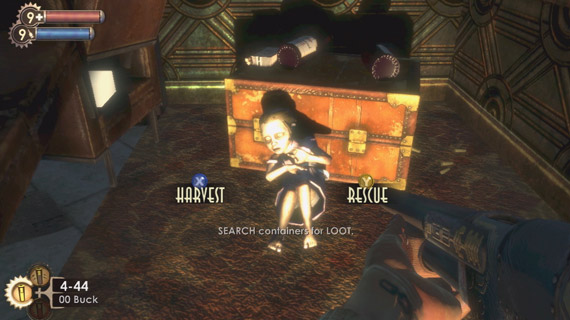
Moral choices have long been a part of gaming. They offer the chance for a player to leave their mark on a game, affecting the outcome and changing the course of a game. These binary, good vs. evil choices are so often structured in the same way. Evil choices are flashy and violent, giving you a small amount of short term gain in return for a karmic hit. Good choices then should be the opposite, giving up personal gain in exchange for doing the right thing. But this isn’t how they manifest. You are almost always rewarded for doing the “good” thing, and frequently the long term gains outweigh the gains from evil. The only real difference ends up being different achievements, or possibly some different dialogue at the end of the game.
Why Did I Watch That? - Lara Croft Tomb Raider: The Cradle of Life
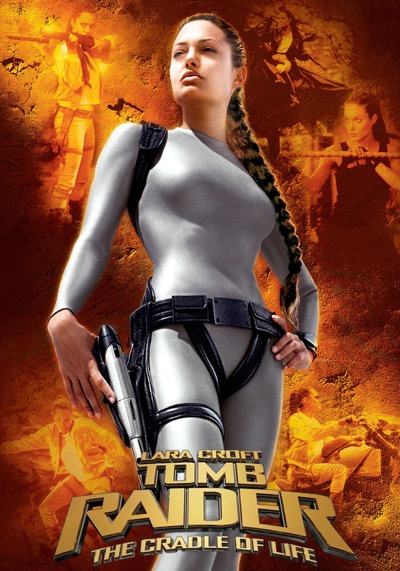
I watched a bad movie today. It is sort of a guilty pleasure of mine. Watching bad movies that is. I revel in the terrible plots, paper-thin characters, cheesy effects, and wooden acting. It fuels me. I love them in a way that I can’t quite describe, or feel about bad games or music. To me, bad films deserve to be recognized, talked about, and maybe occasionally ridiculed. This one is no exception.
Video game movies are almost universally terrible. They’ve attempted different franchises and actors in pursuit of finally making a good video game movie. And it just isn’t working. In the midst of this, somehow, a sequel to Lara Croft: Tomb Raider, a movie about finding a magical triangle that can control time that was almost universally critically panned, was greenlit. A franchise built almost entirely upon leering shots of Angelina Jolie being sexy.
Psychoanalytic Theory
As this site moves forward and we begin to introduce more complex topics it will become useful for us to give a primer in some of the themes and ideas that we are talking about. We've done a little bit of this already, but we will be digging in a little deeper into the topics in question. Death of the Critic is, at its heart, a critical website where we try to take a deeper look at different aspects of media. From movies to games to music and more, we aim to enhance the discussion around media in order to deepen our knowledge and understanding.
Let’s talk about schools of theory. When we critique, frequently we do so through a specific lens. Works can have a lot of meaning hidden deep within them, and if we aimed to fully analyze a book, movie, or game, we could easily fill an entire book. So we use these schools of theory as a way to focus in on one particular area of a work. This helps us hone in on a specific idea and expand upon it more fully than if we had tried to do a very broad reading. By centering on one aspect, the analysis becomes more clear and focused.
Read More…
Logan and the R-Rated Superhero

Deadpool came out almost a year ago and somehow managed to be a huge commercial success. With Logan coming out today, many have predicted that this success will be repeated. But what does this mean for the comic book superhero? Comics can be dark, frequently being much more explicit than their on screen counterparts. Glossy pages splashed with blood and gore, provocatively dressed heroines, and sinister plots spanning decades. Movies aren’t afraid of violence, but blood and sex make them squeamish.
The Backlog - Dead Rising 4
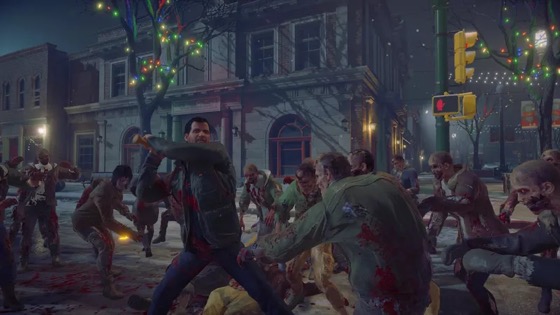
I have a confession to make. Like many of you reading this, I have a list of games that I’ve been meaning play for years. I have way too many games on Steam, and a stack of cases sitting next to my TV. Close to five hundred games now. Maybe more. It makes me feel guilty. I haven’t touched 90% of them in one way or another. I need to fix that. So this week, I dug deep into my backlog and pulled out a game. I want to play all of them; I’ve just never had the chance. Now’s the time.
Zombies might be a bit overdone the days, but the Dead Rising series has always brought its own unique look and feel to the genre. They are dumb, but in the best sense of the word, and no other game quite matches the amount of action on screen at one time. When you boil them down, they are essentially Musou games, where you run around and slap zombies with increasingly ridiculous weapons. In this sense, Dead Rising 4 definitely delivers. While it does tone down the number of weapons from 3, it has a world that is big and fun to run around in, and the return of Frank West brings the franchise back to its roots, in more ways than one.
Anatomy of a Scene - Chef
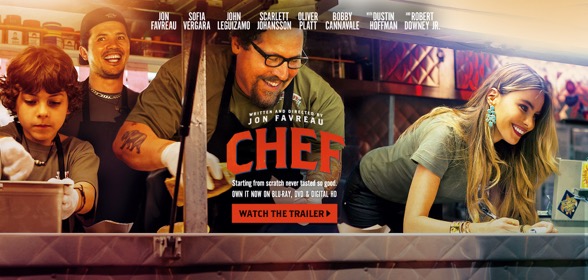
Sensuality is a difficult thing to portray. Making a man like Jon Favreau sexy is only adds onto the challenge. He falls well outside the lines of “conventional” good looks, especially those of Hollywood’s masculine ideals. But the scene where he cooks for Scarlett Johansson in his apartment is as sexy as any we’ve seen. It combines light and playful shots with loving attention to detail to bring you a veritable feast for the senses: aural, visual, and more, as you can almost smell and taste the pasta that he makes for her. It is a scene about simplicity in many ways, in the midst of a turning point for his character, foreshadowing the rest of the film, and perfectly encapsulating his passion as a chef.
Ghost Recon: Wildlands - First Impressions
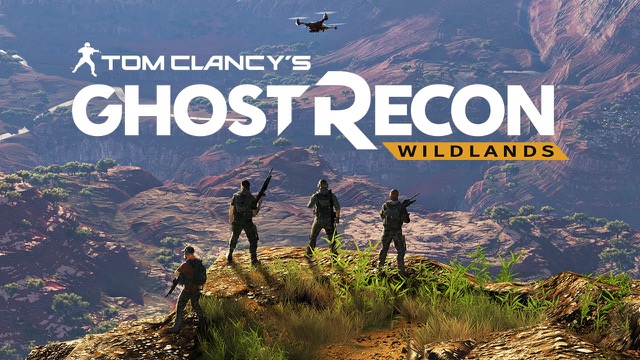
The beta has ended and in one short week Ghost Recon: Wildlands will be in everyone’s hands. So we sat down this weekend and tore through all of the content that the beta had to offer, both solo, and together in co-op. There was a huge amountof content to be found, and more than a few baffling decisions made. I don’t know if it feels like a Ghost Recon game, but it was damn fun. You can clearly see the influence that other open world games have had on its design. It’s an amalgamation of different ideas and tones that come together surprisingly well.
Why Did I Watch That? - Wolf Warriors

I watched a bad movie today. It is sort of a guilty pleasure of mine. Watching bad movies that is. I revel in the terrible plots, paper-thin characters, cheesy effects, and wooden acting. It fuels me. I love them in a way that I can’t quite describe, or feel about bad games or music. To me, bad films deserve to be recognized, talked about, and maybe occasionally ridiculed. This one is no exception.
One of the joys of this job is that I get to broaden my horizons. I’ve always loved action movies, from the amazing to the… well, markedly less so, and in the past year, I’ve gotten the chance to explore action cinema from all across the world. Wolf Warriors is far from the best action movie I have ever seen, but it is remarkably competent for what it is, with a few cool visuals and laughs thrown in to complement the experience. It has got a few faces you’ll recognize, including the ever present, C-movie “star” Scott Adkins, who does a fairly good job at playing the bad guy instead of a generic, hunky hero.